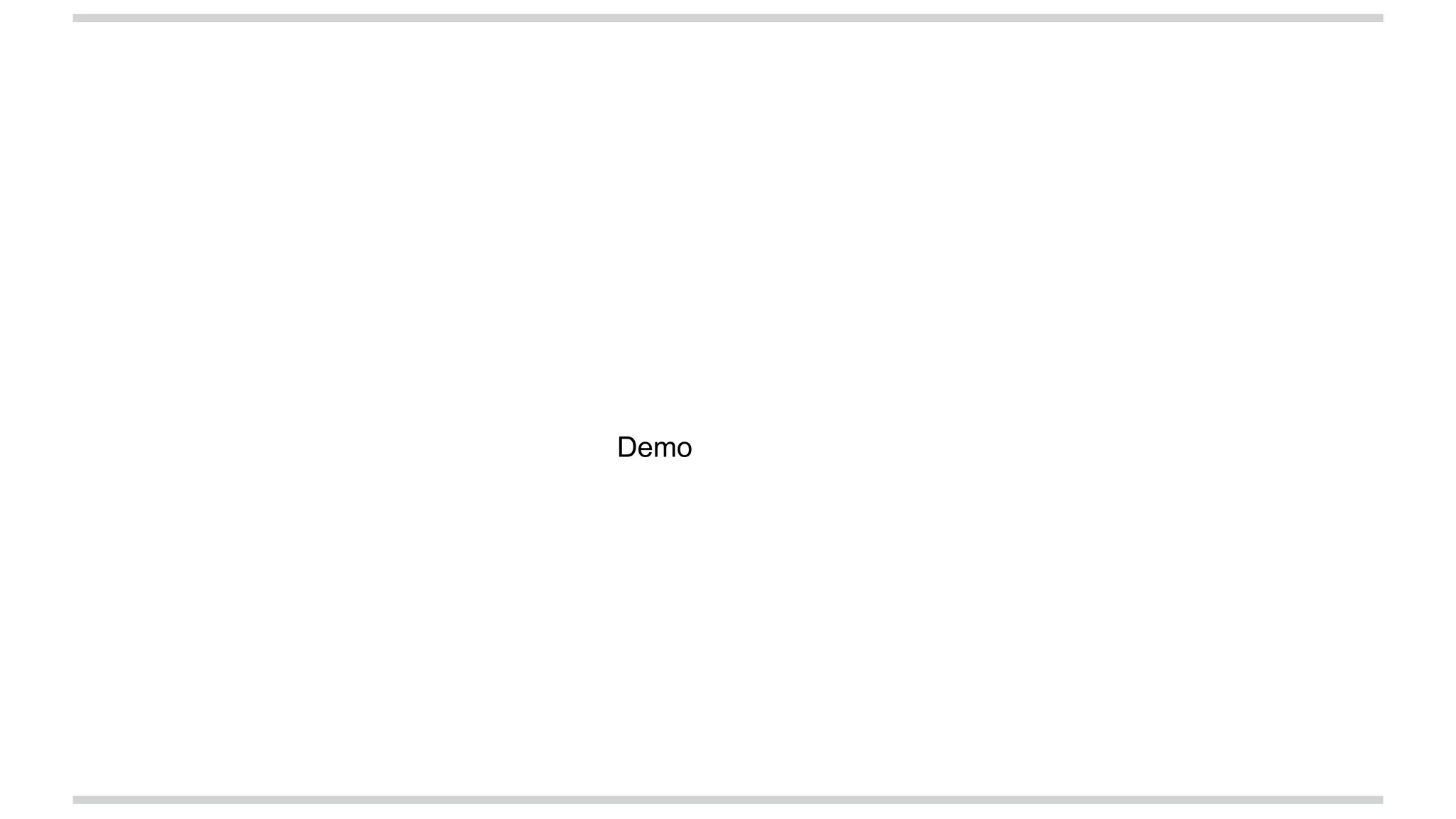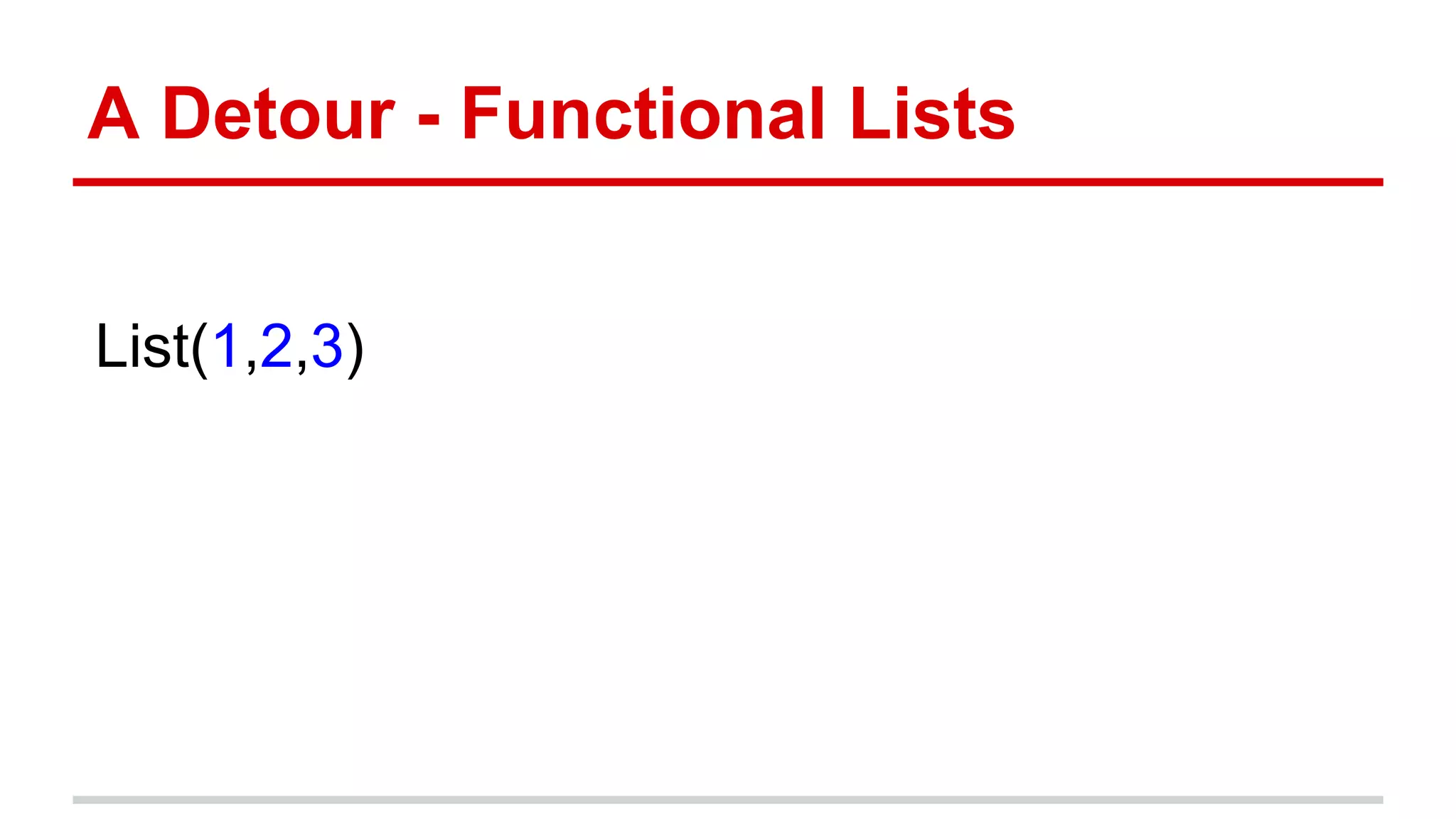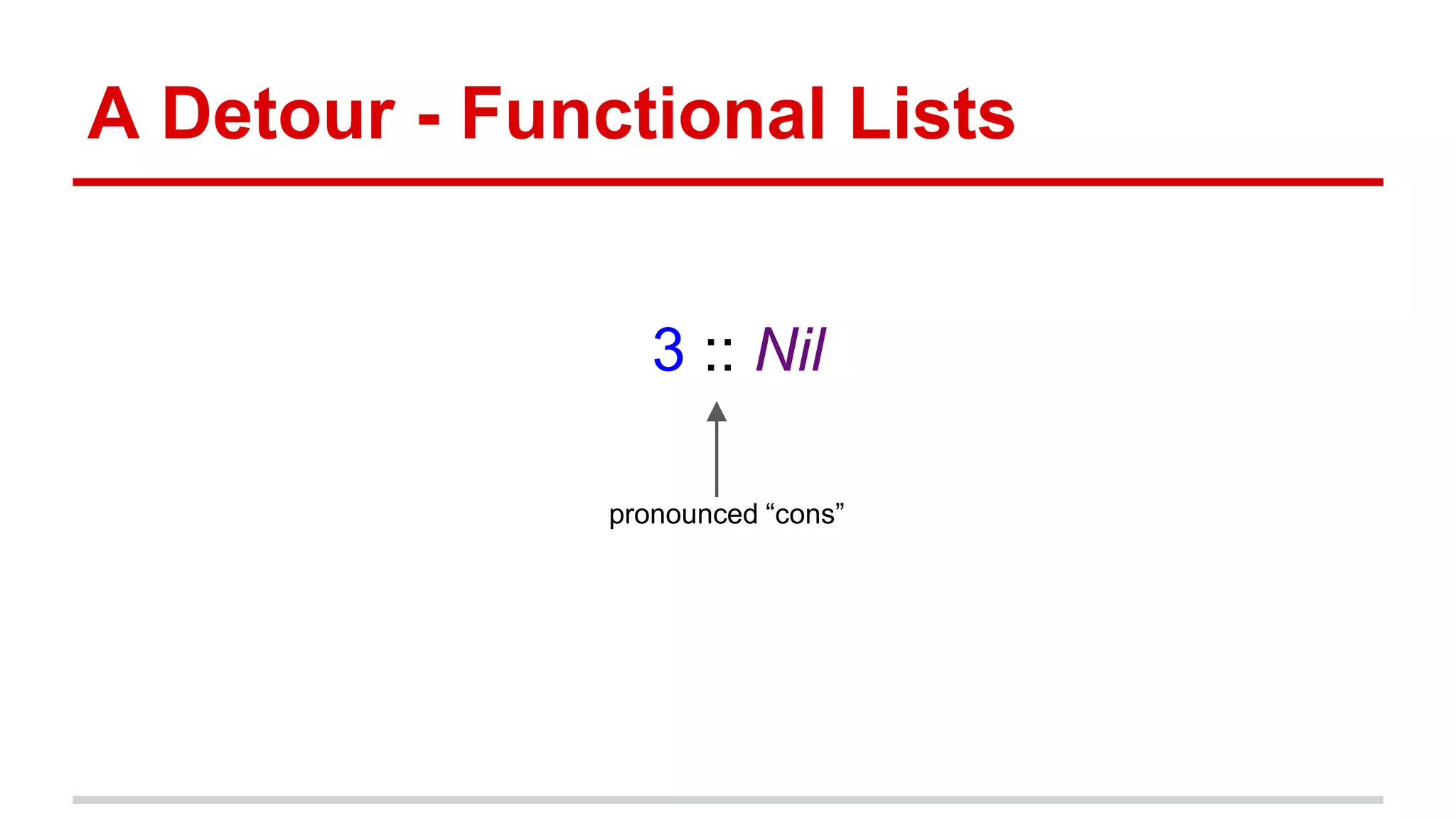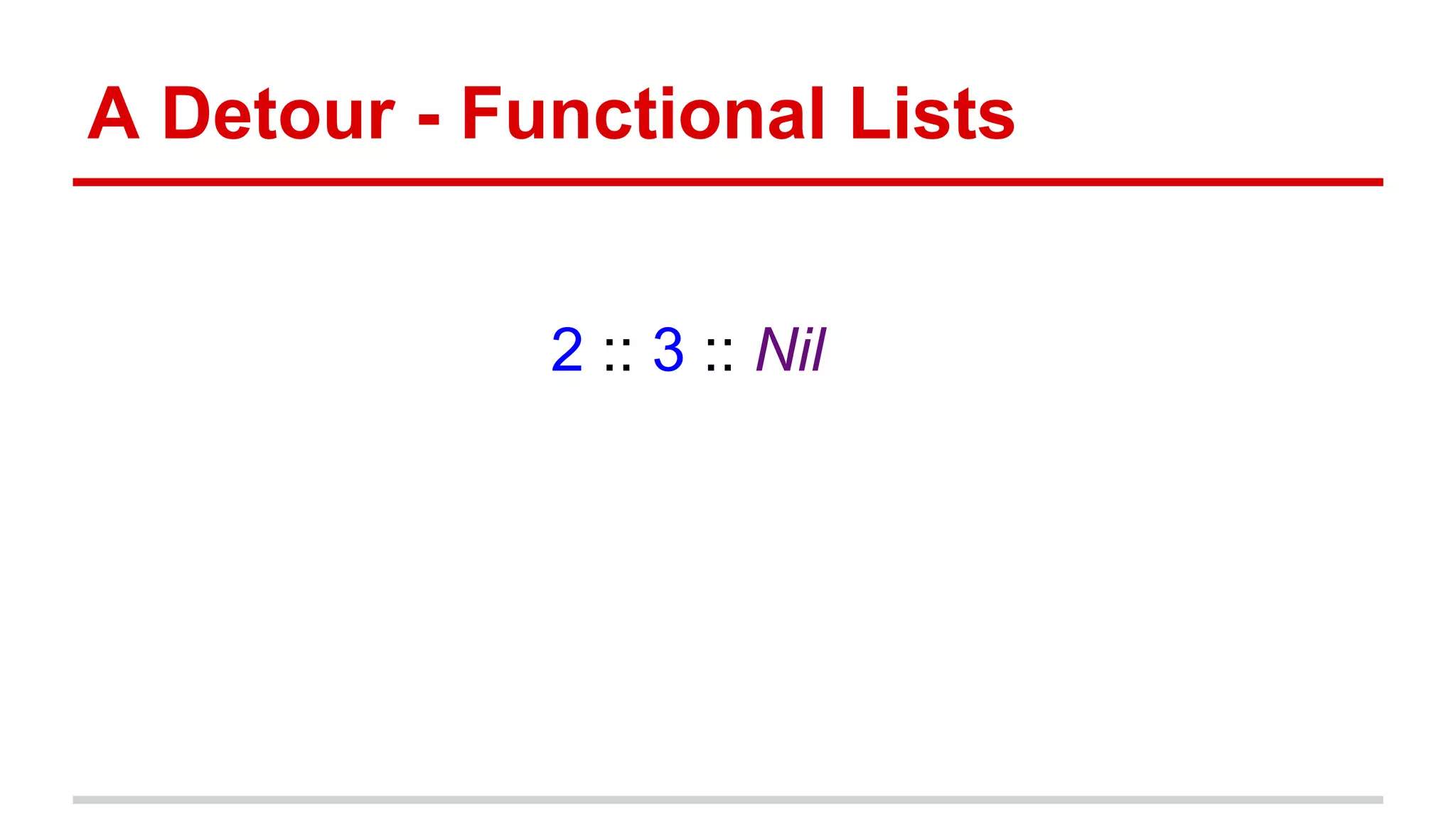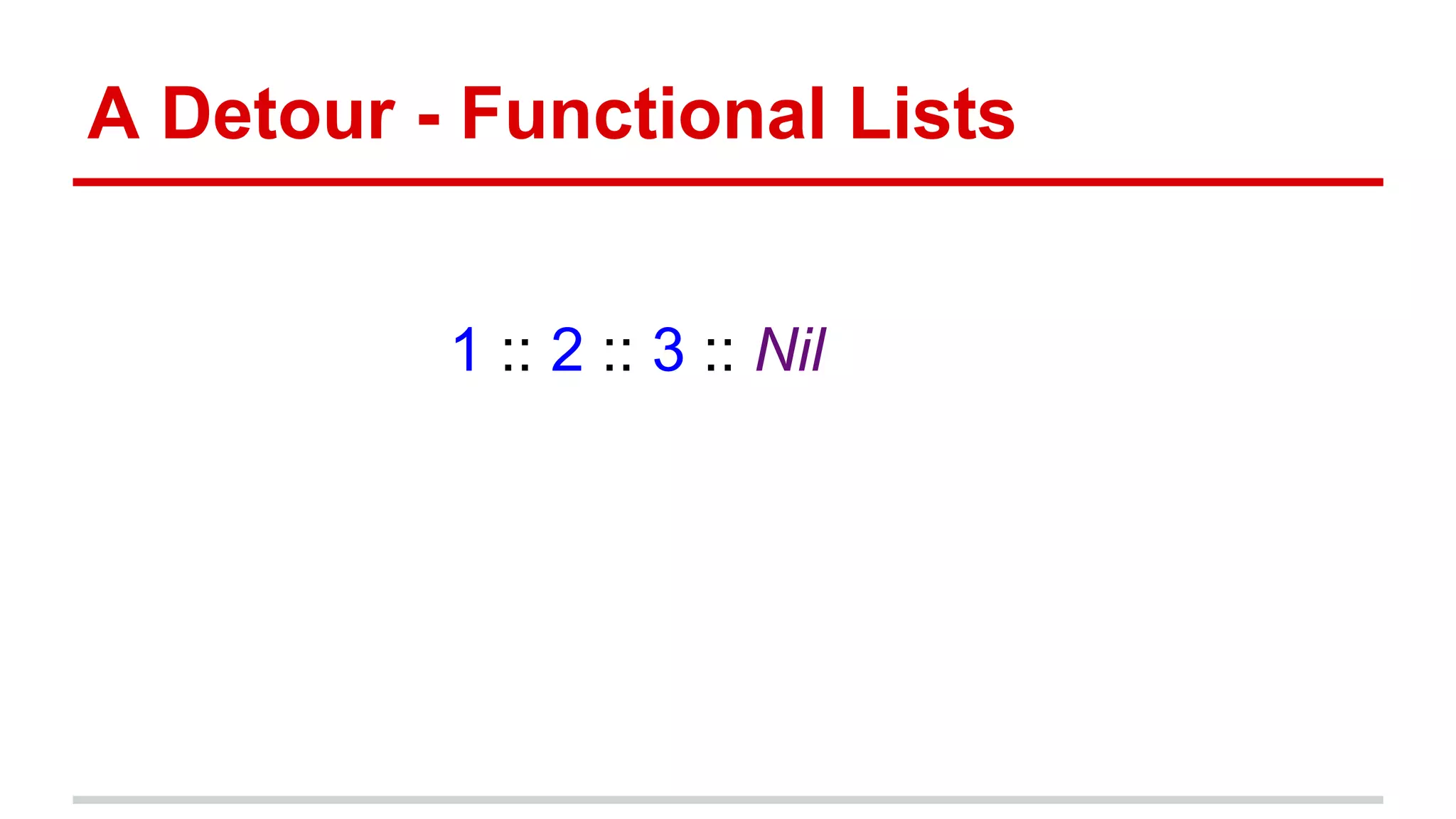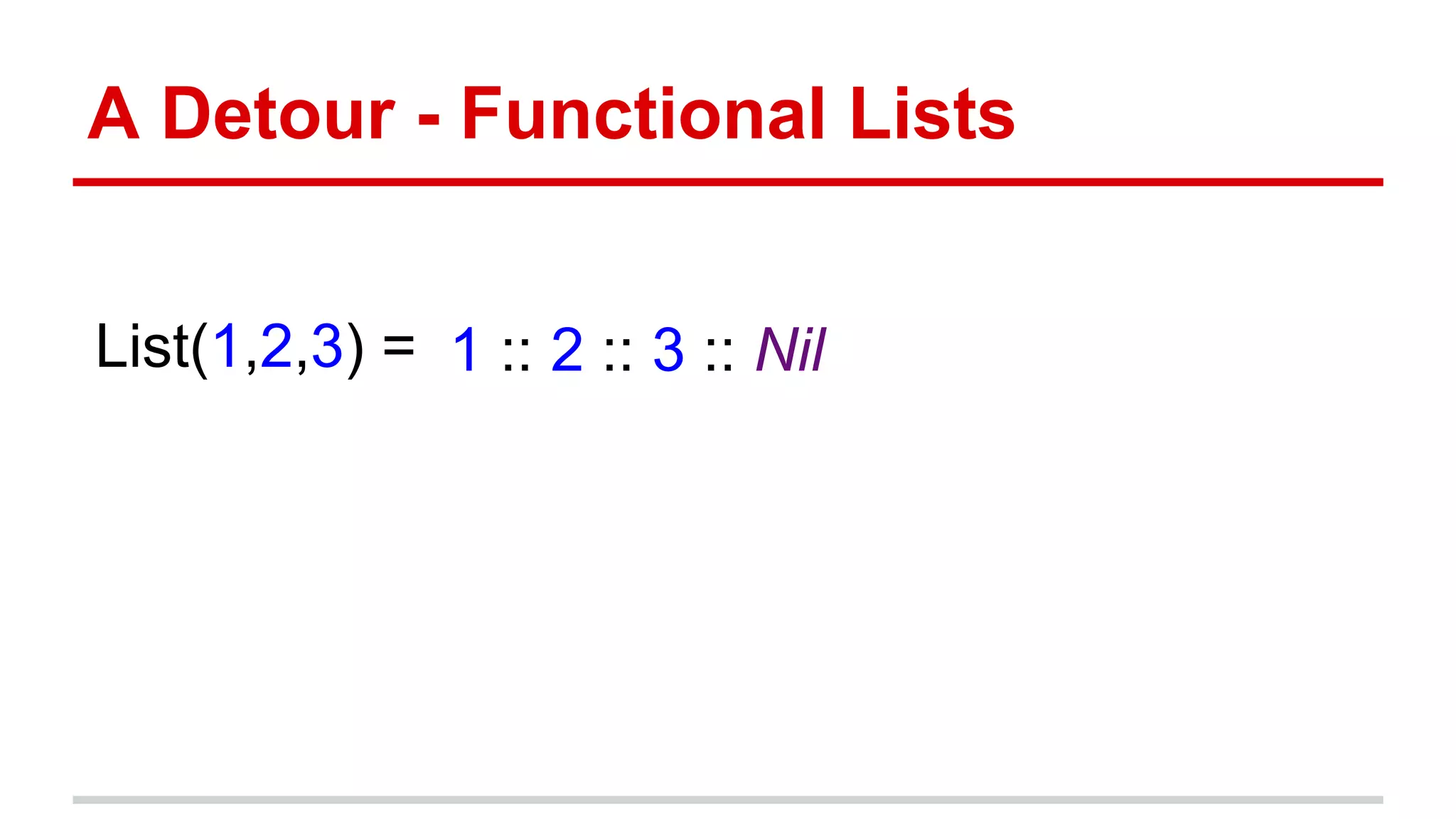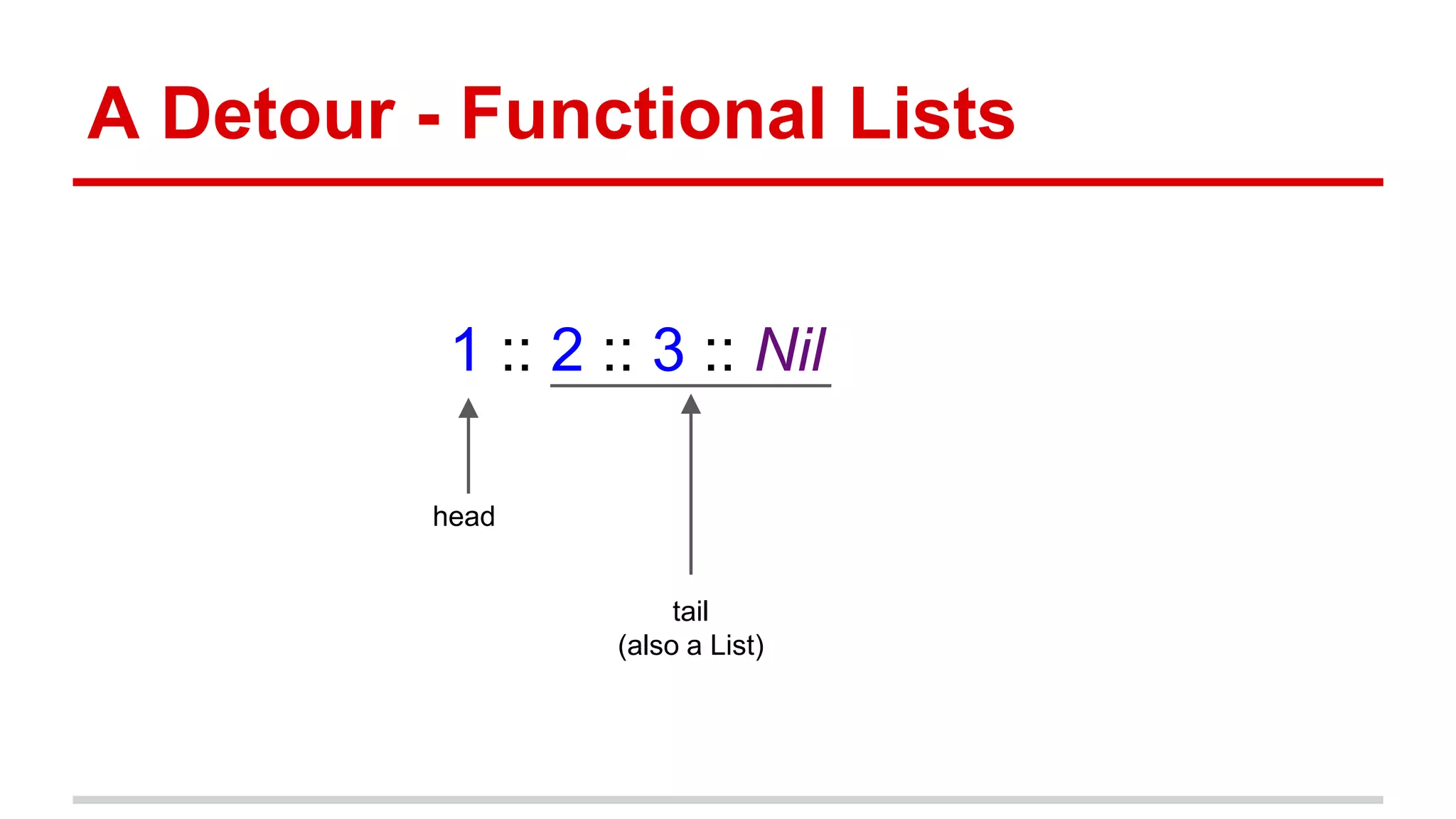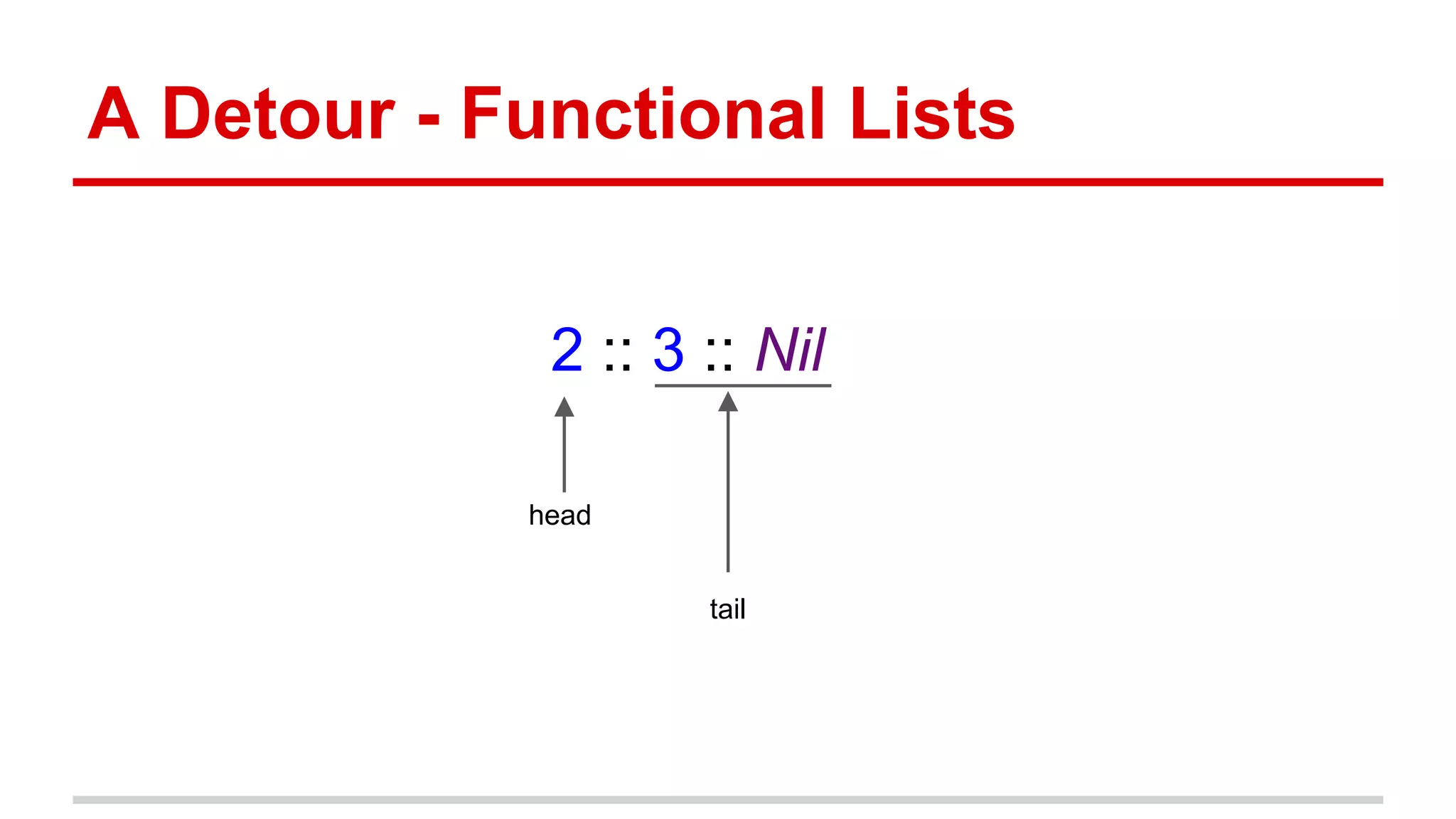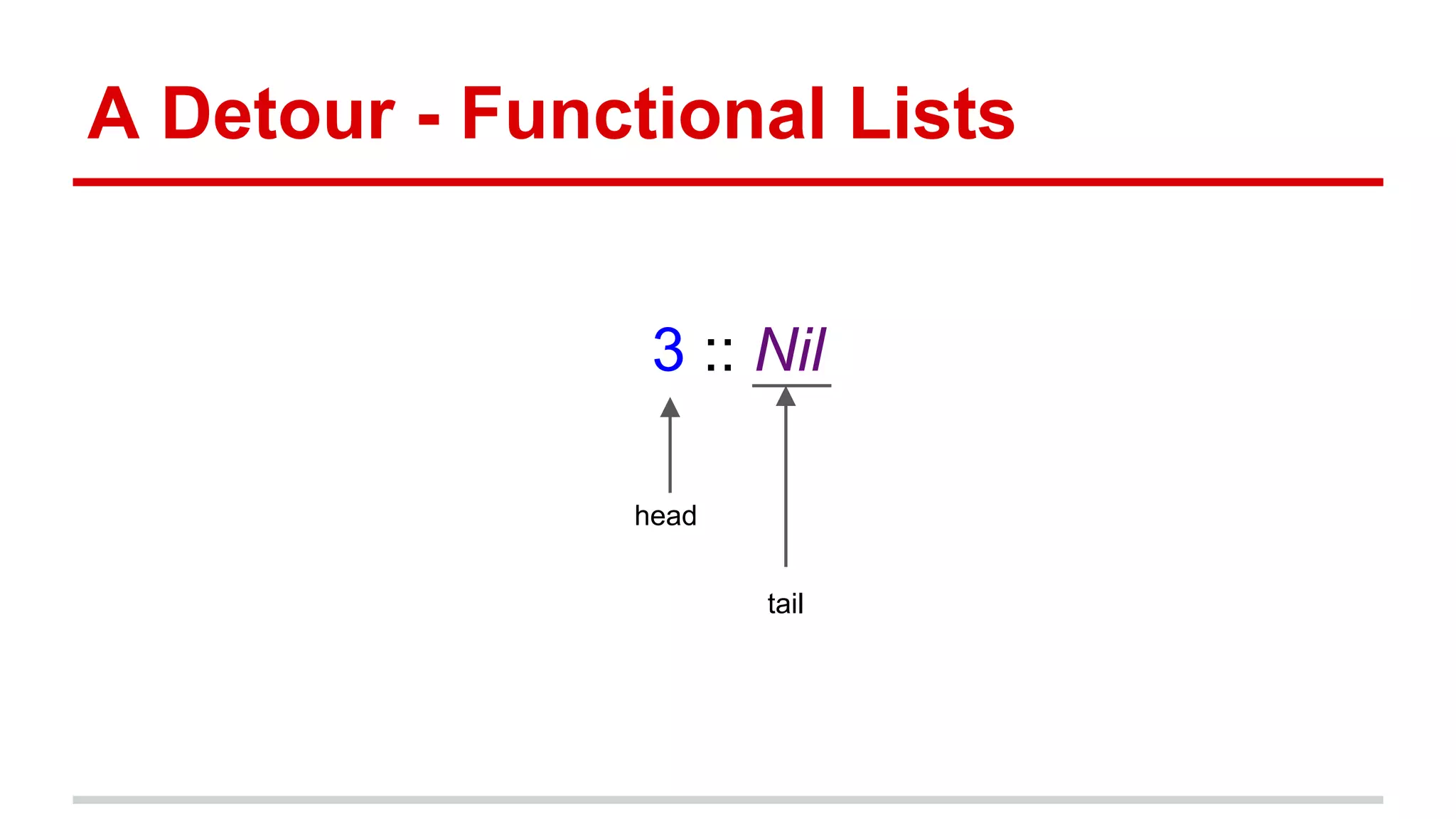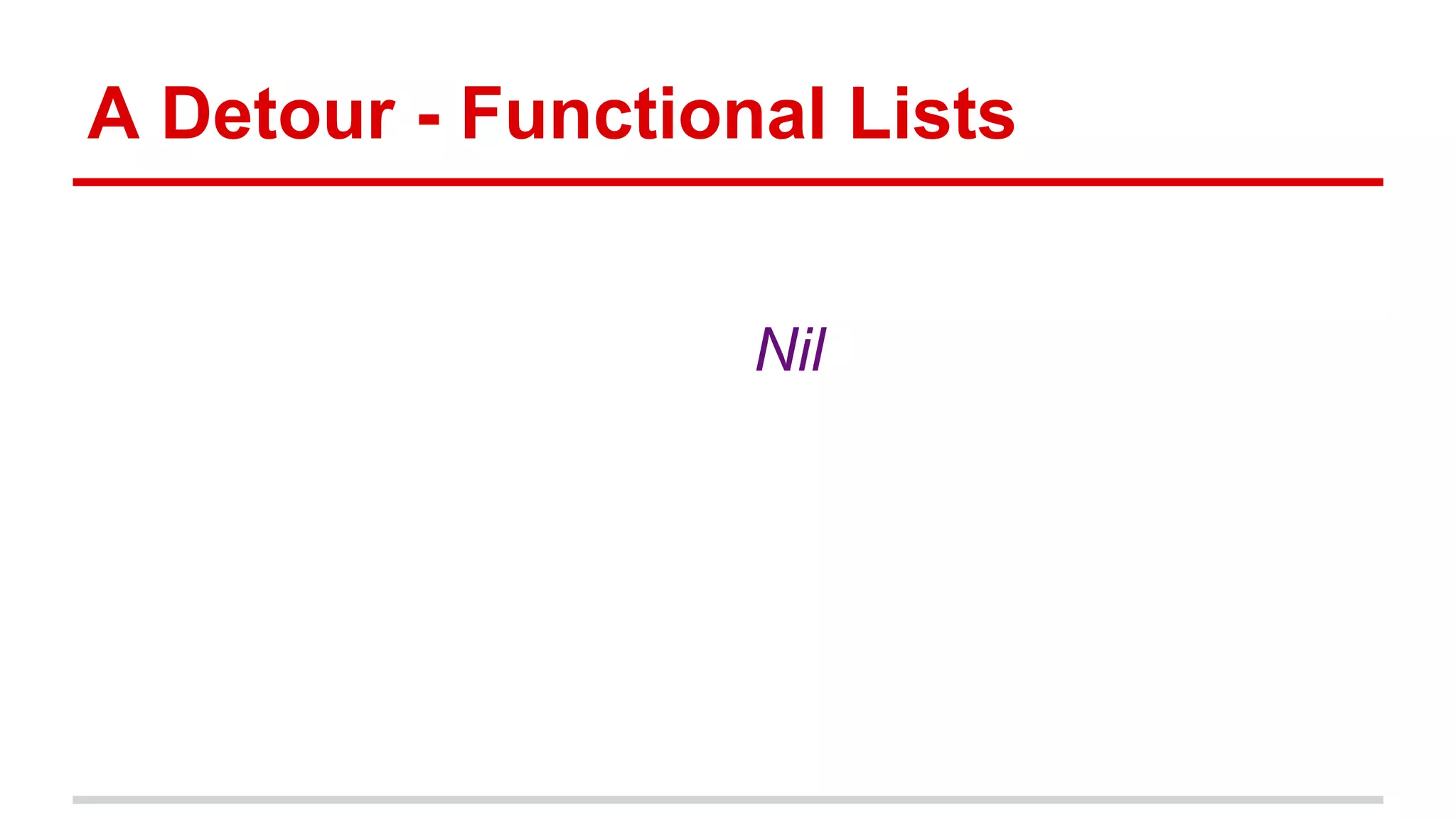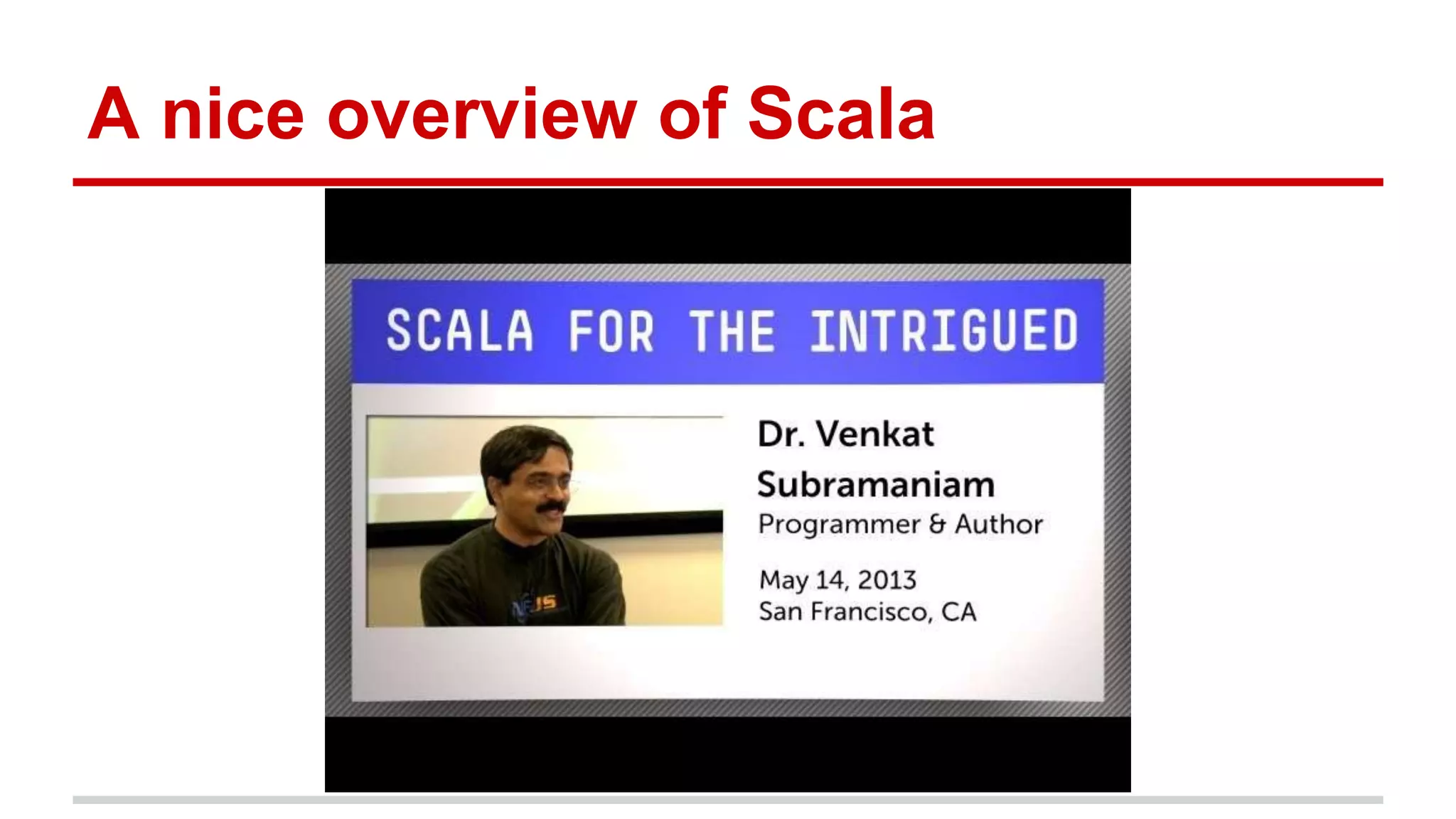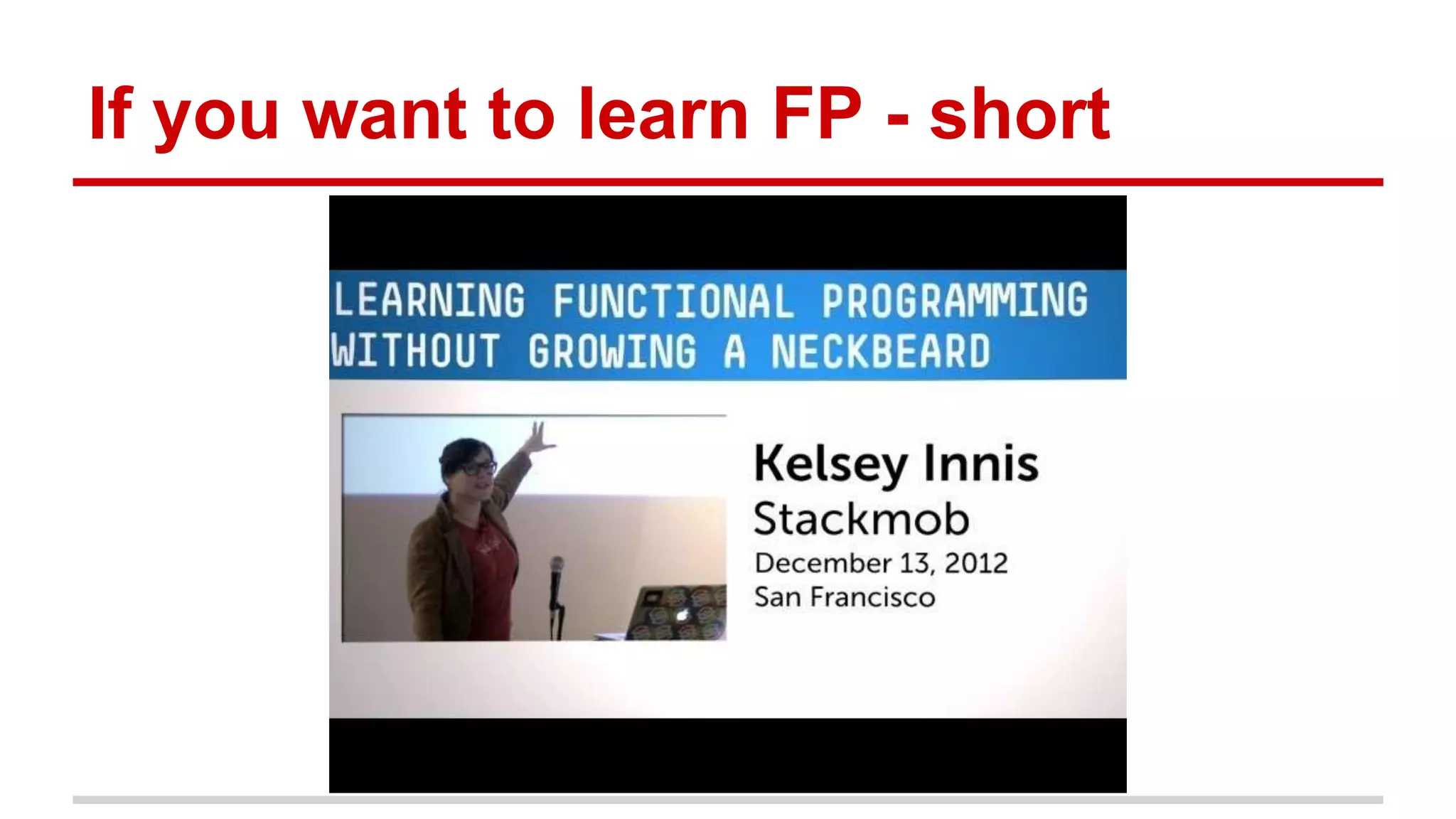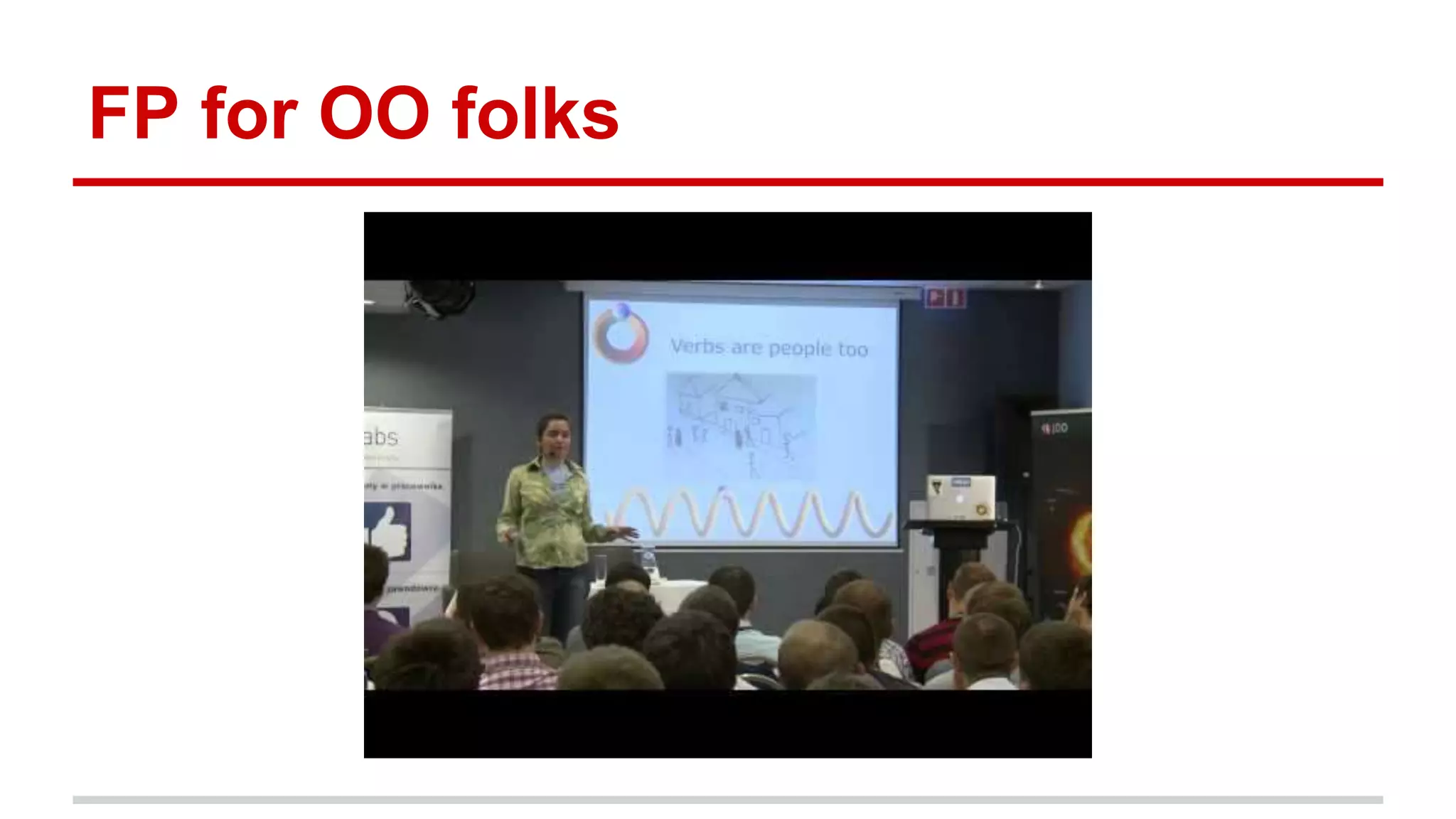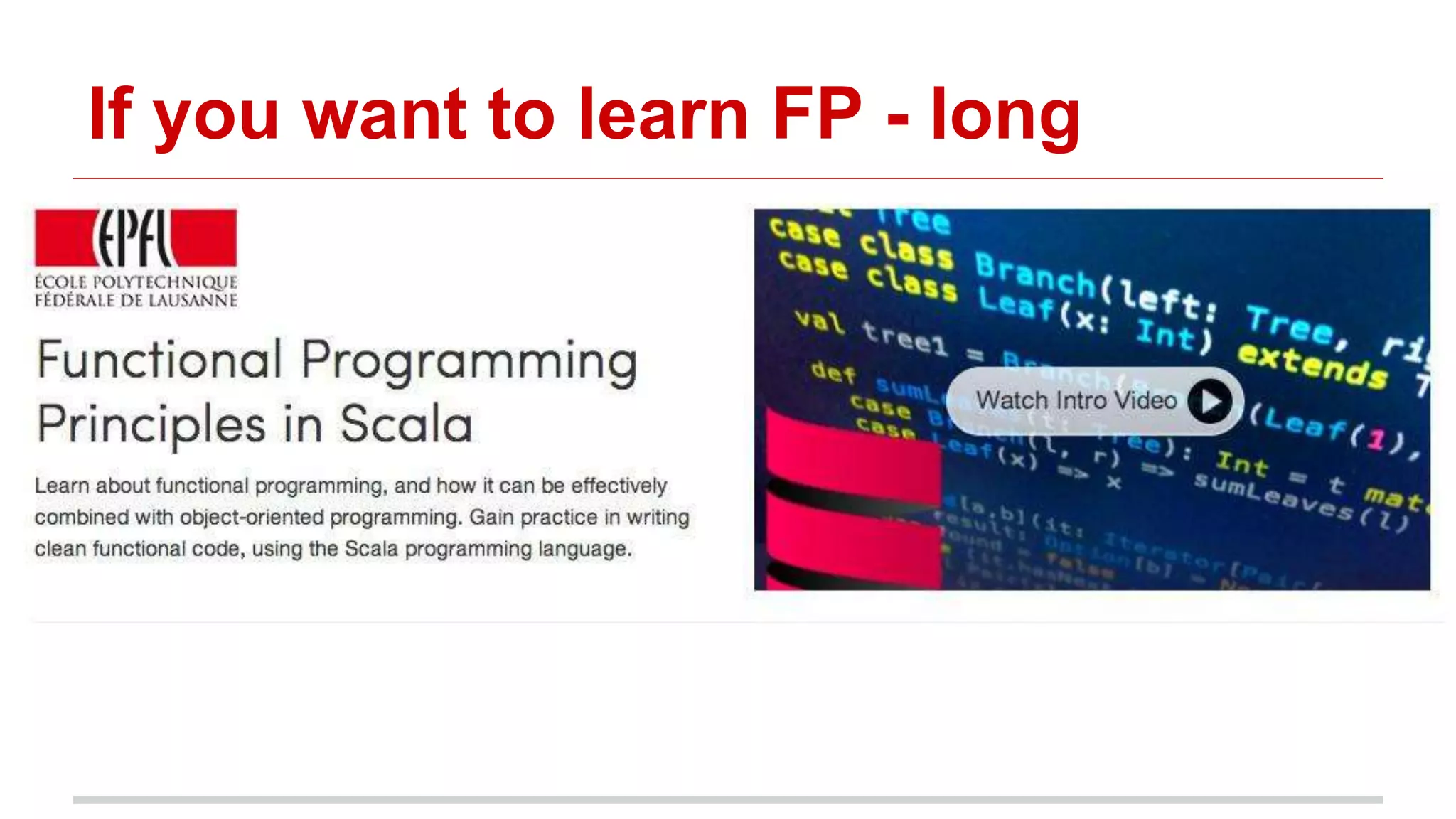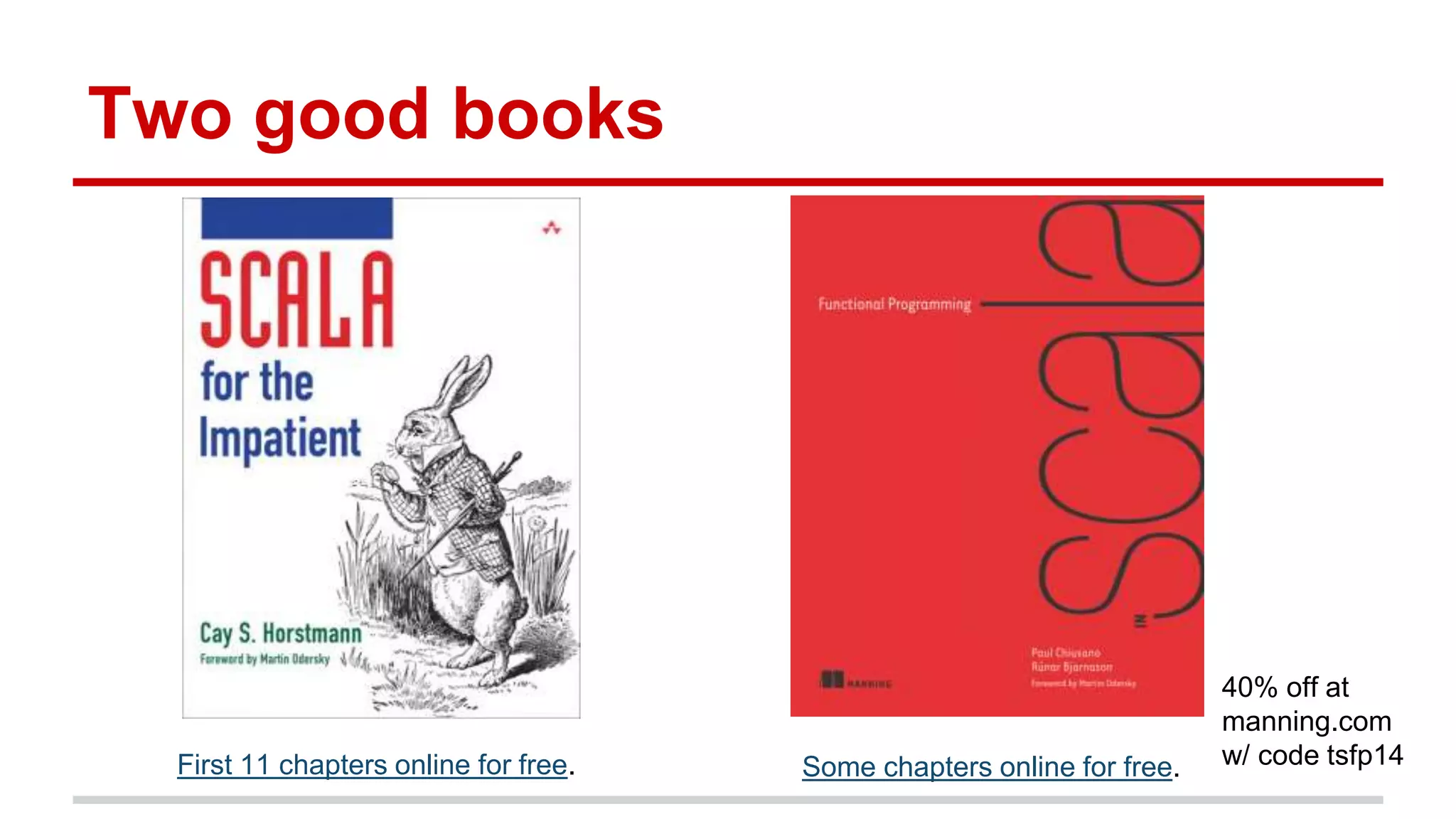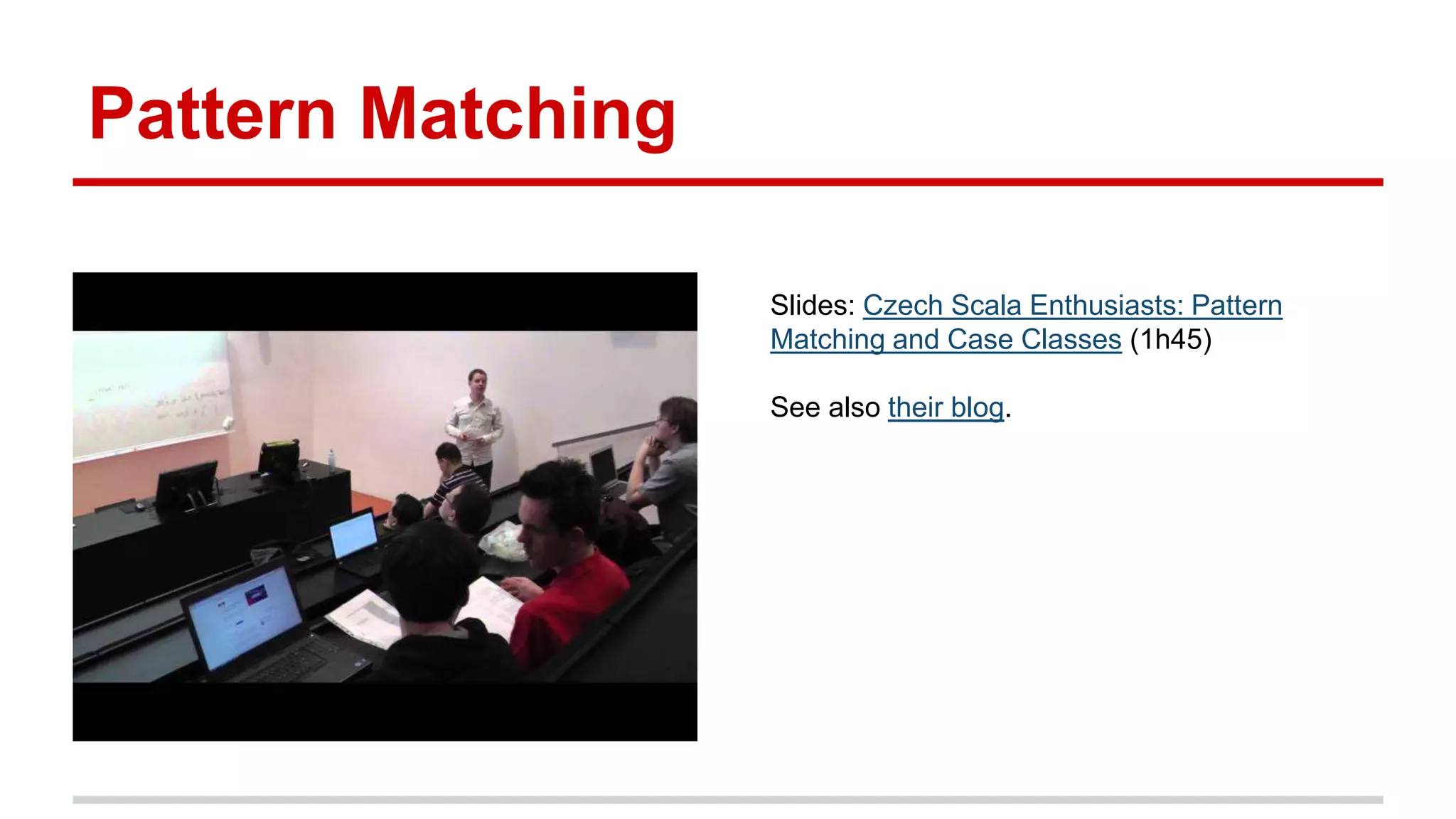The document discusses functional programming principles and practices, referencing various programming languages and concepts such as immutability, purity, and side effects. It highlights programming mistakes like null references and introduces type-safe alternatives with the Option type in Scala. Additionally, it provides examples and resources for those looking to learn functional programming.
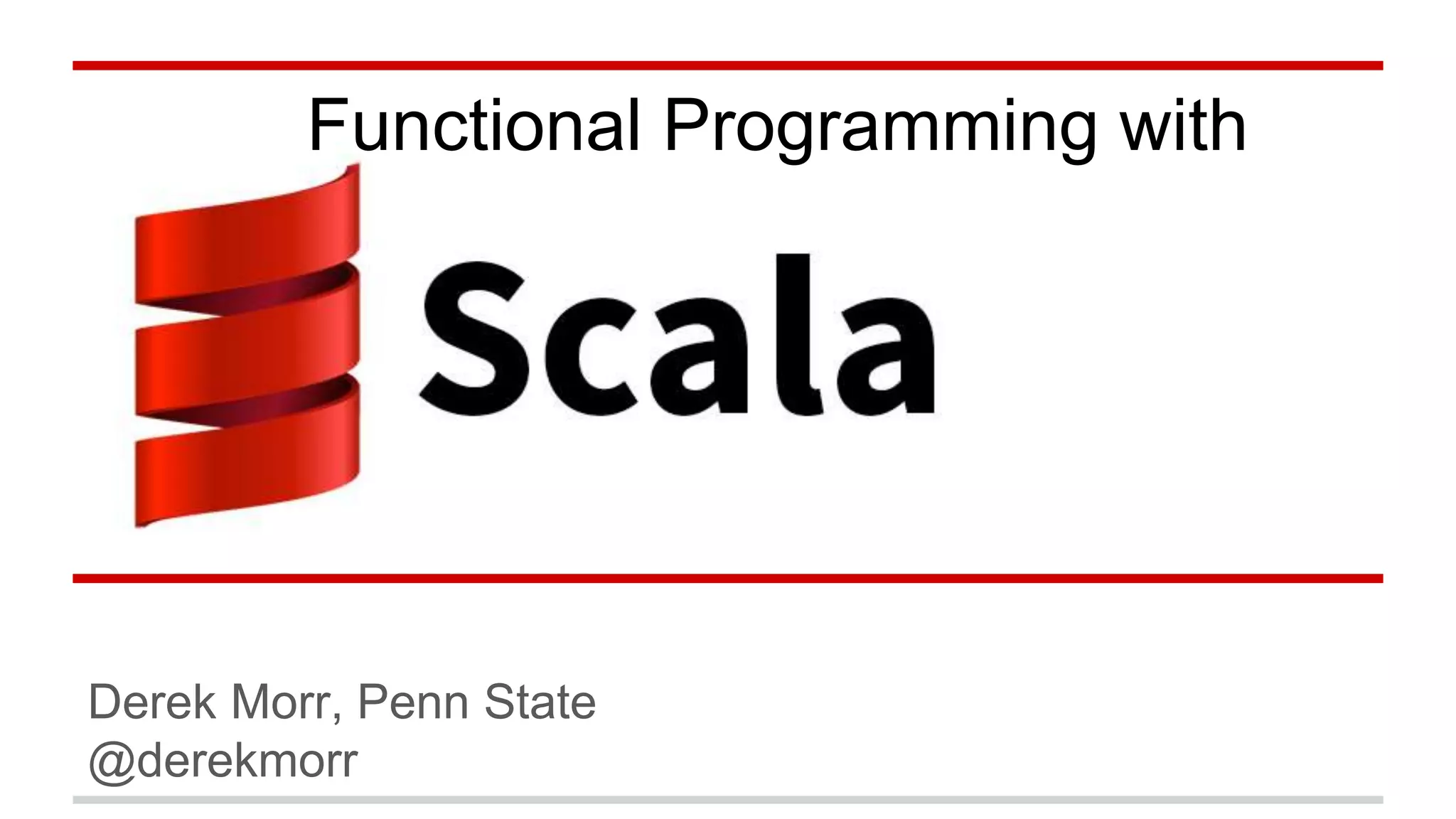
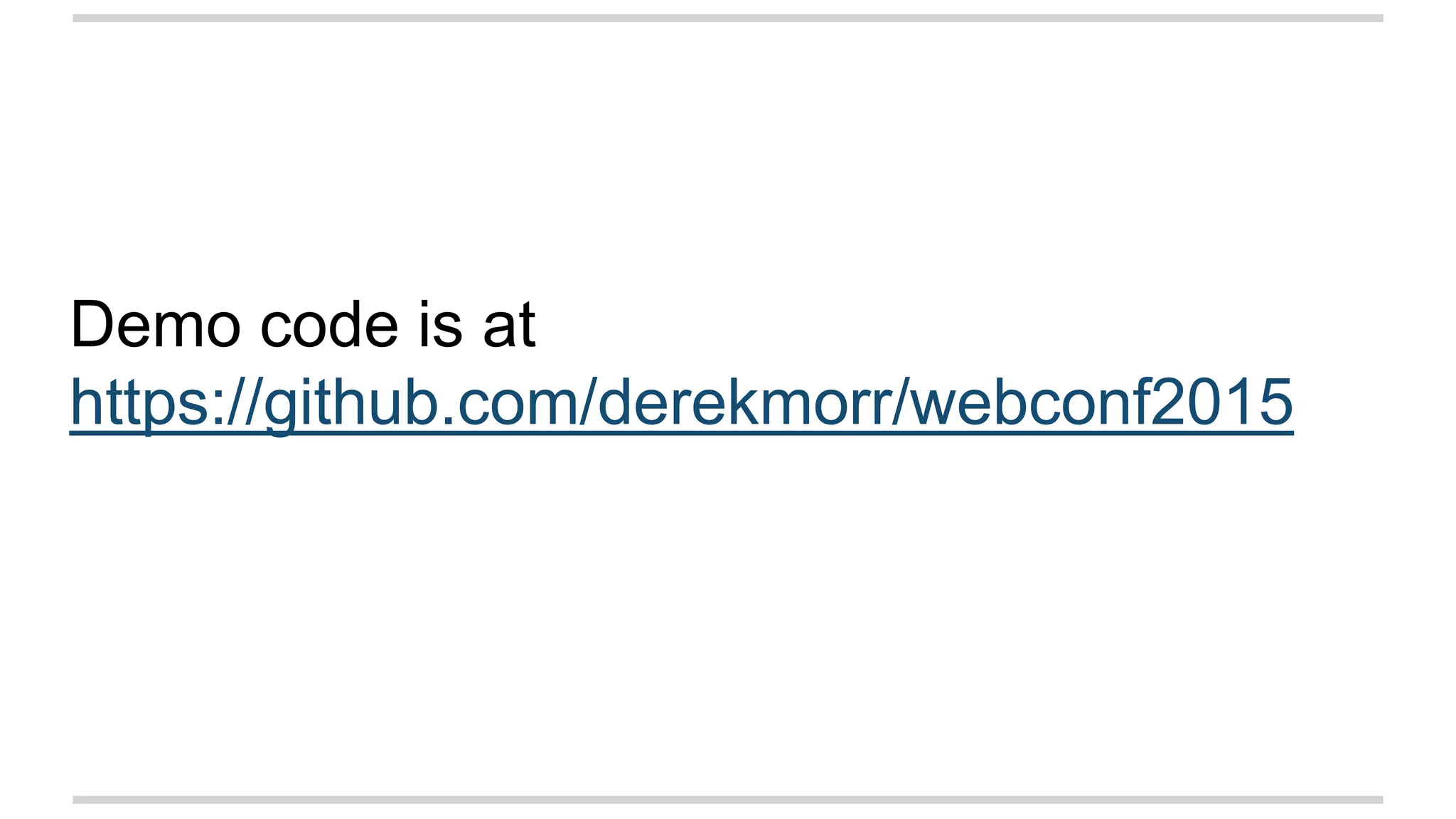
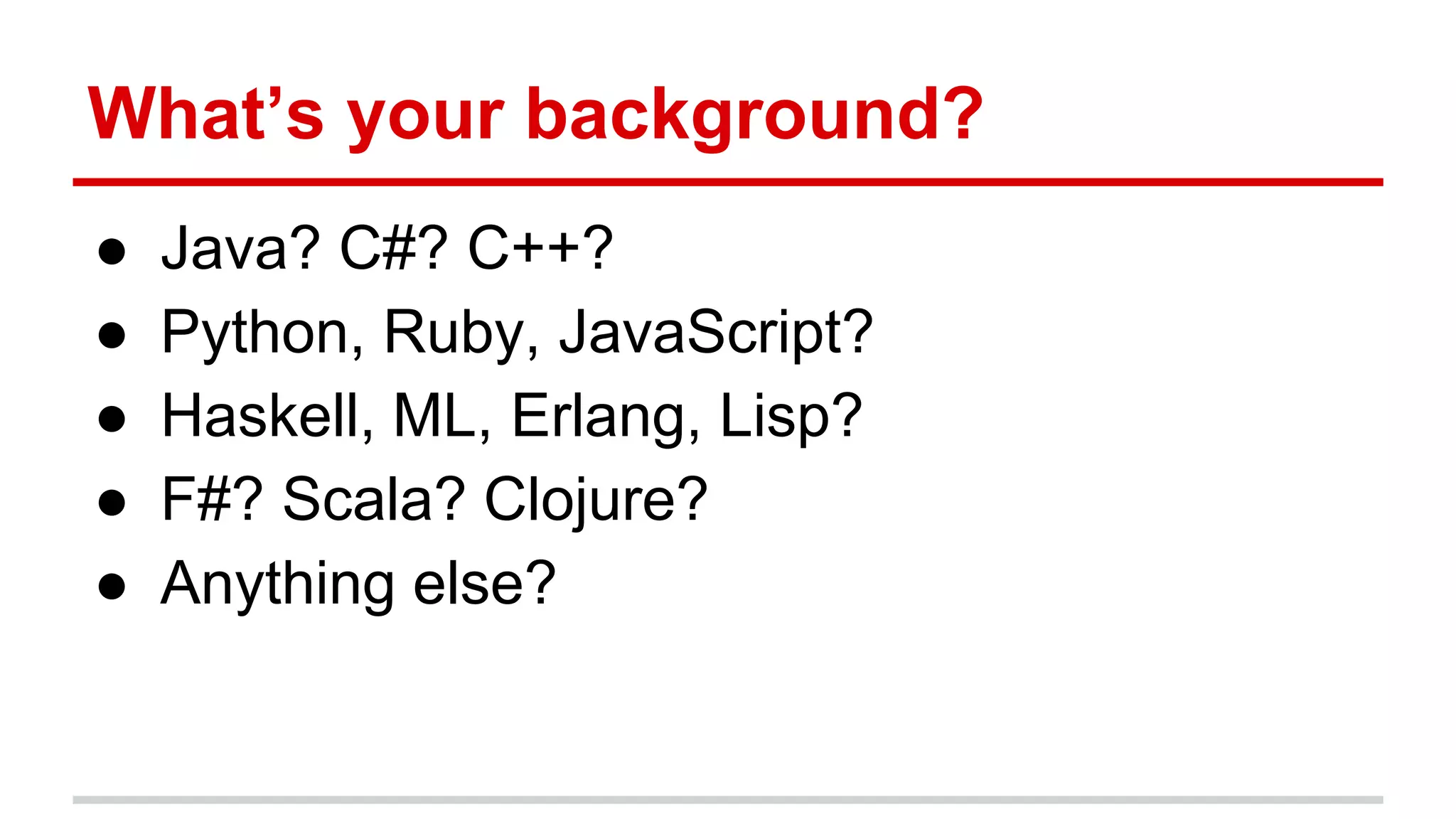
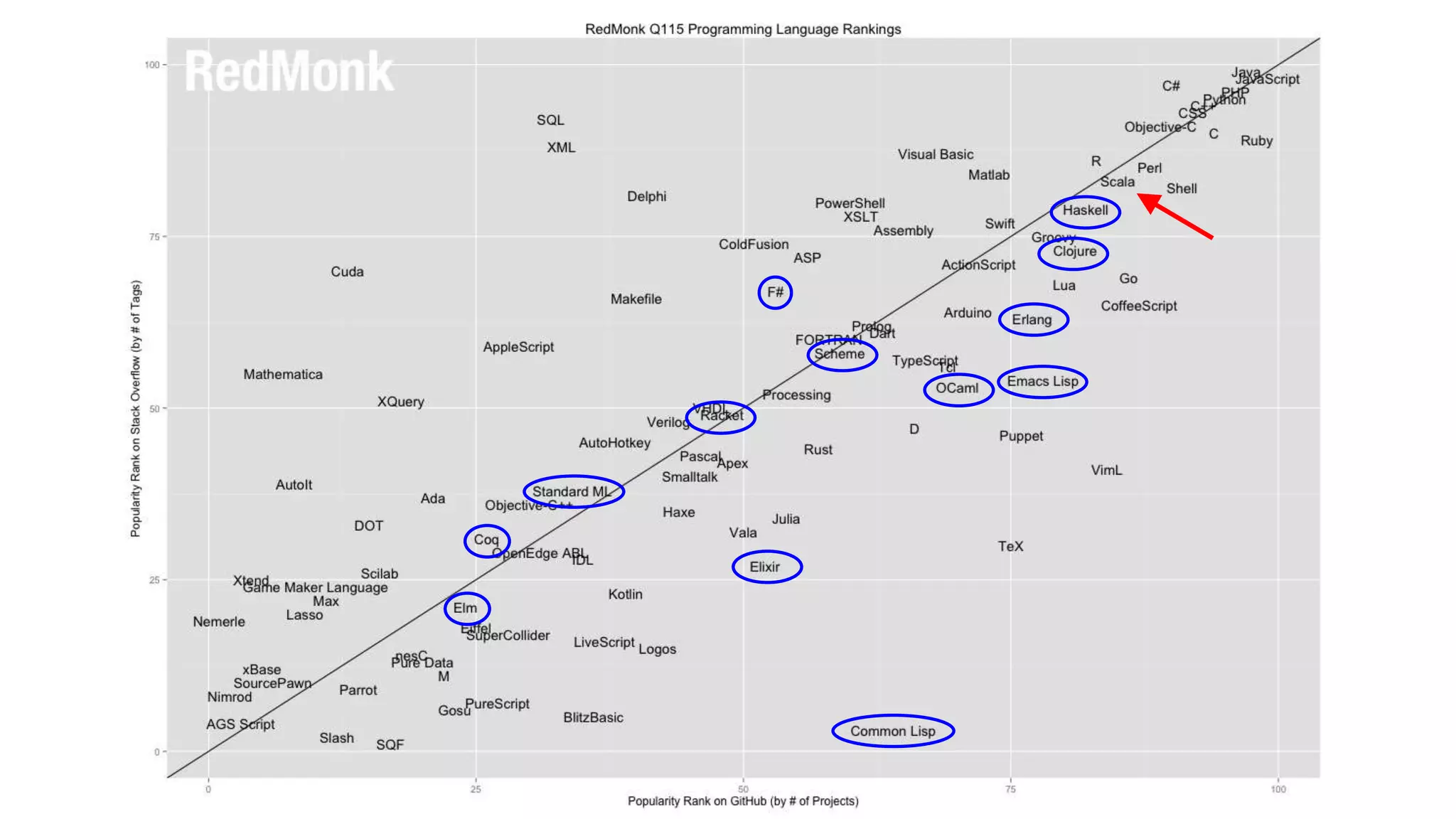
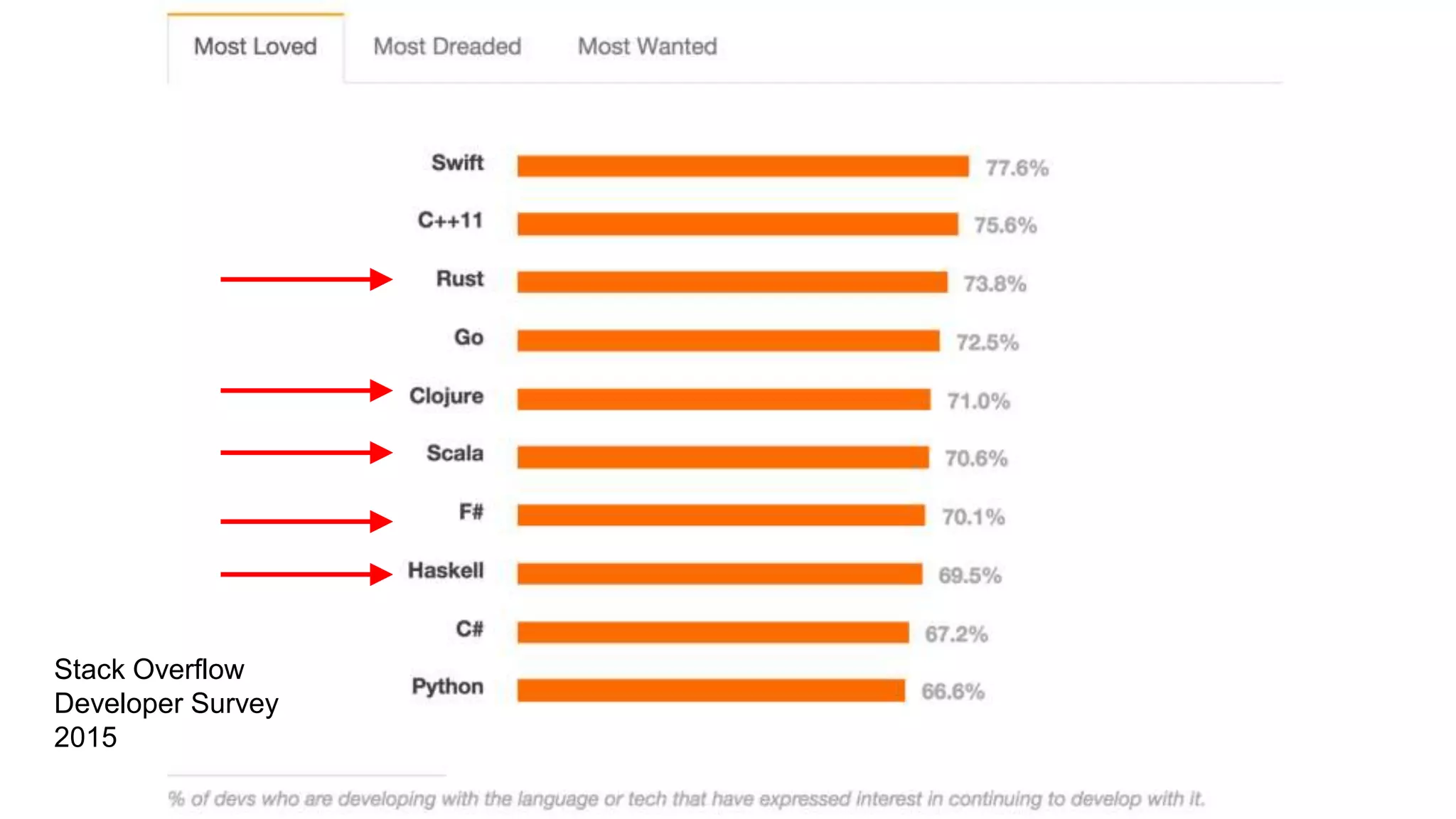
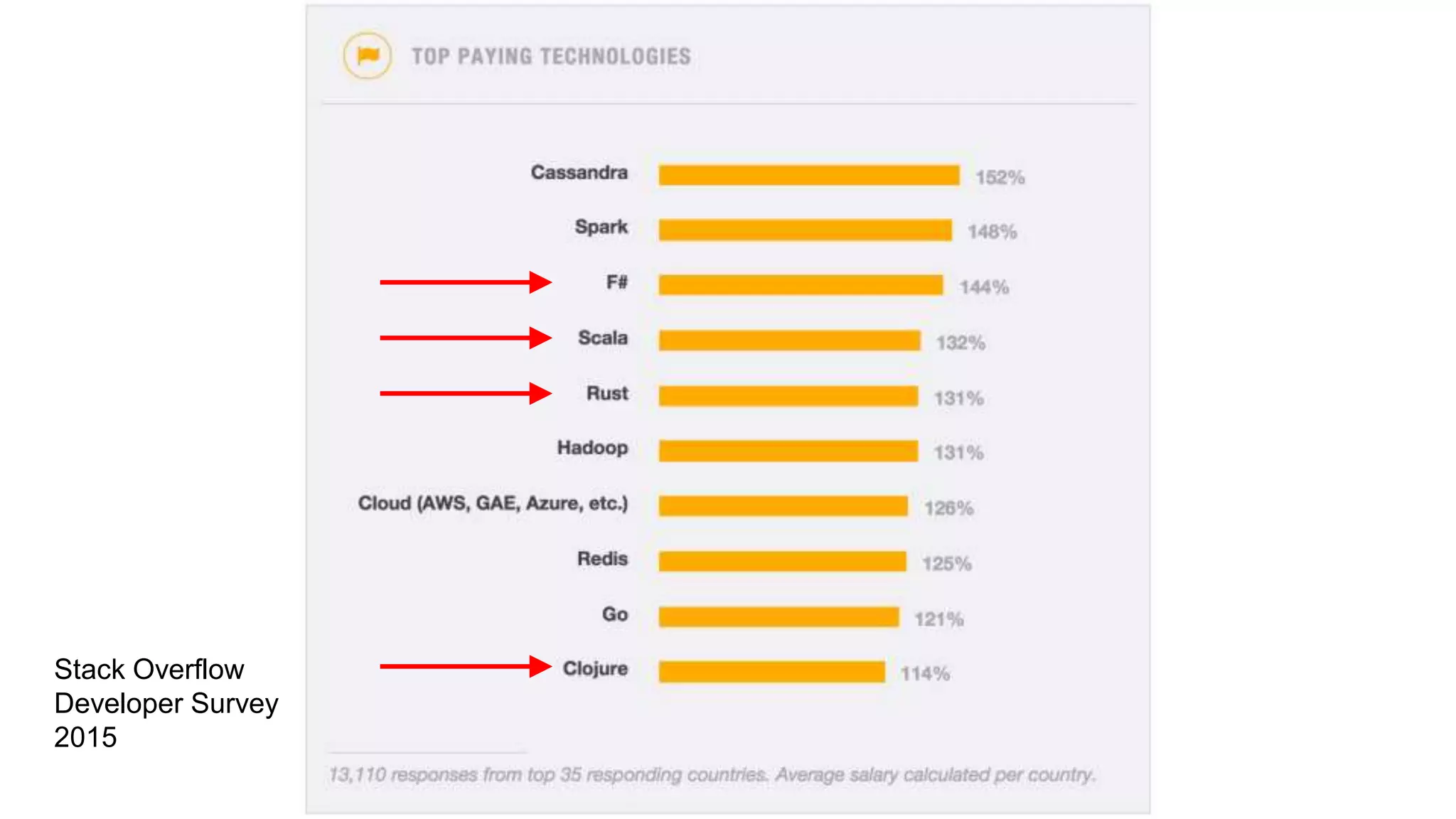
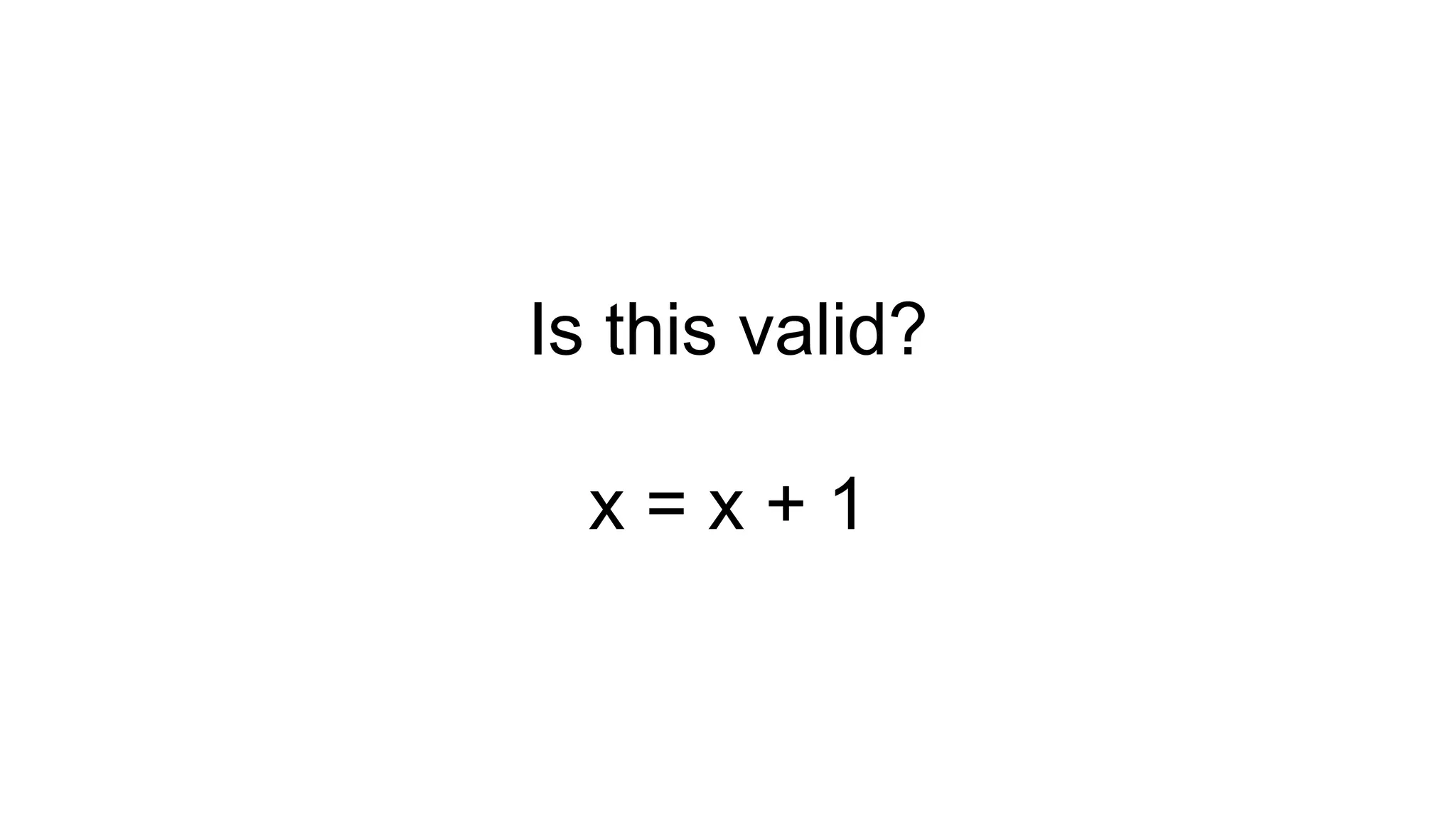
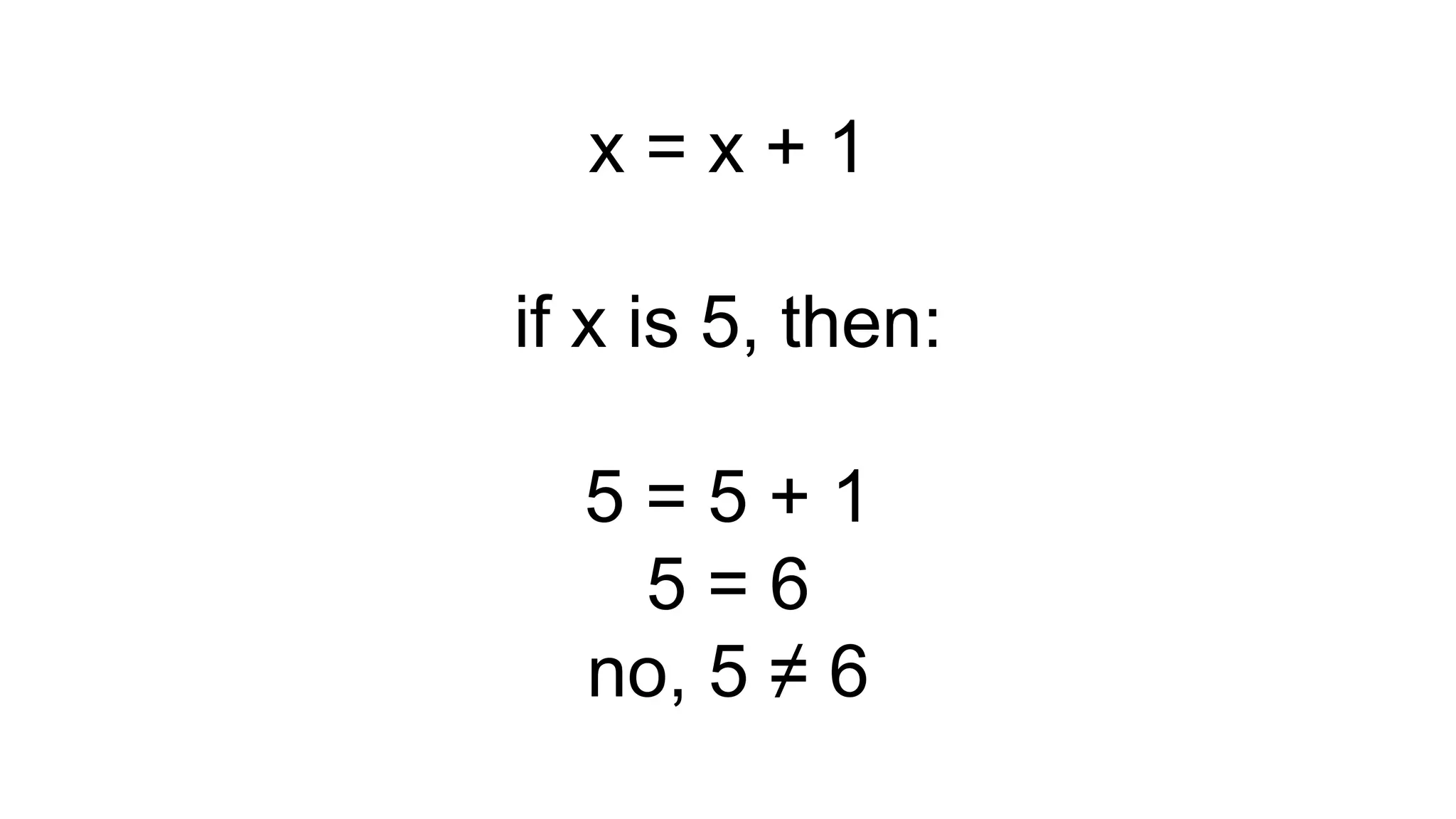
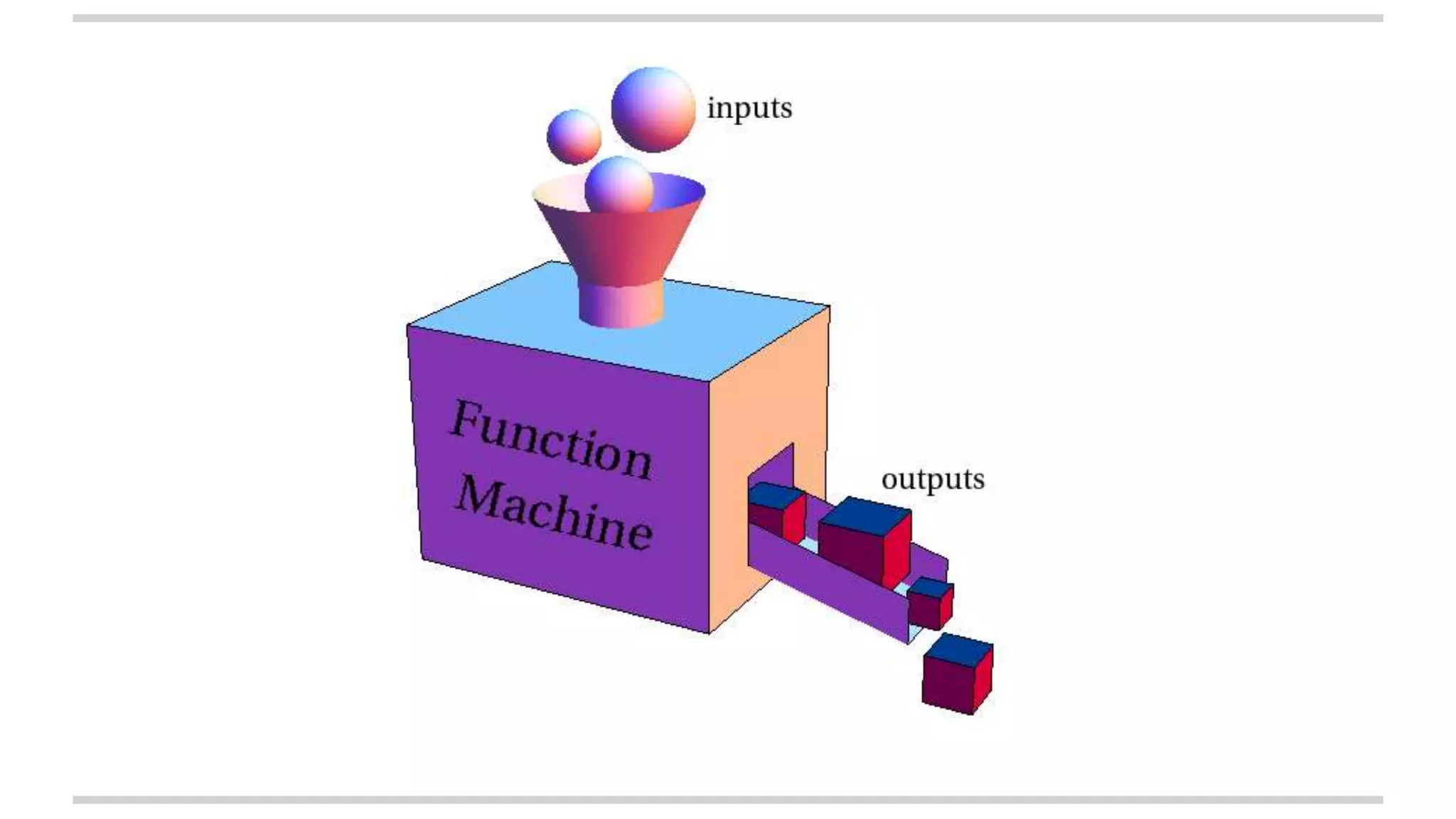

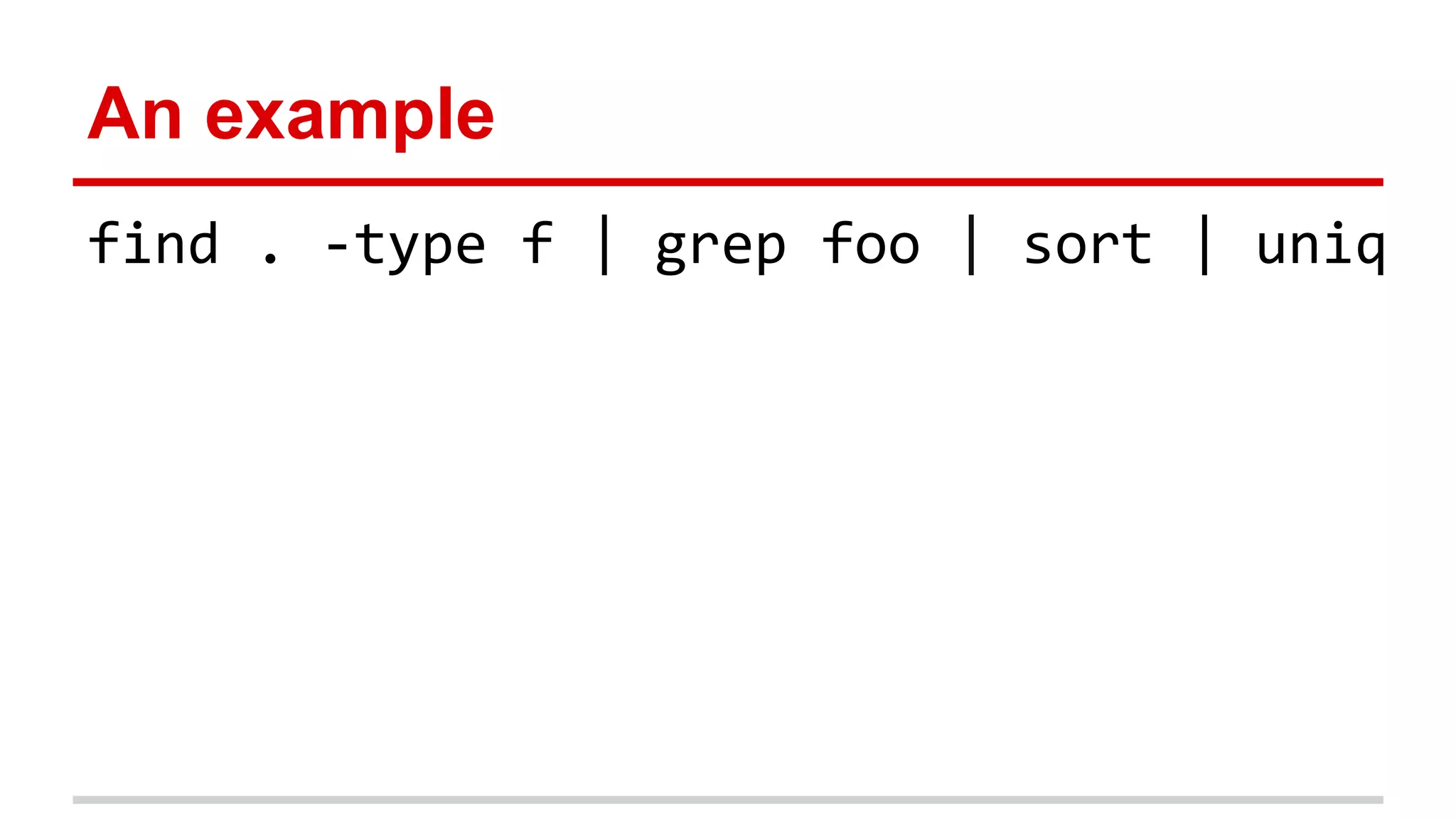
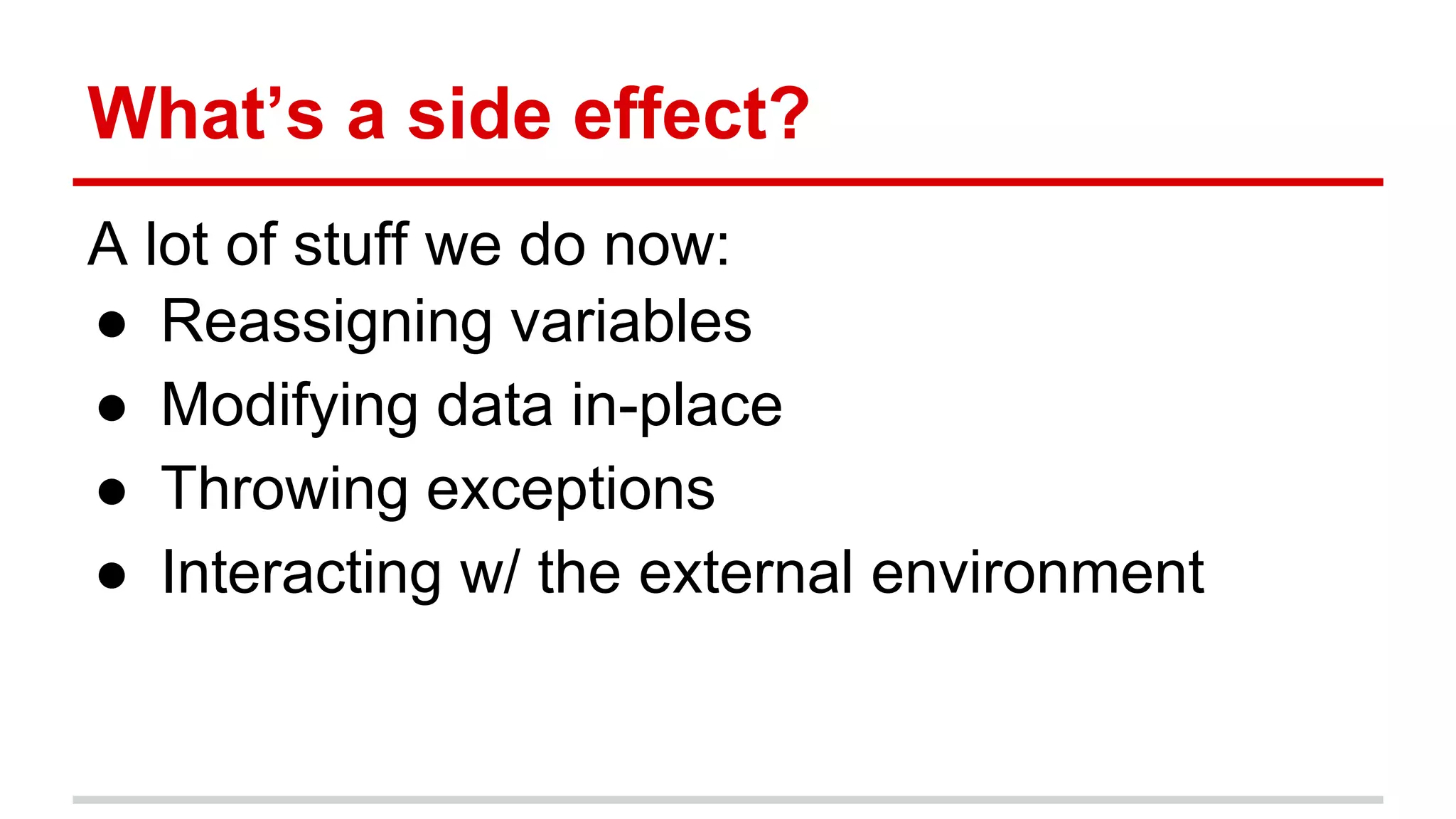
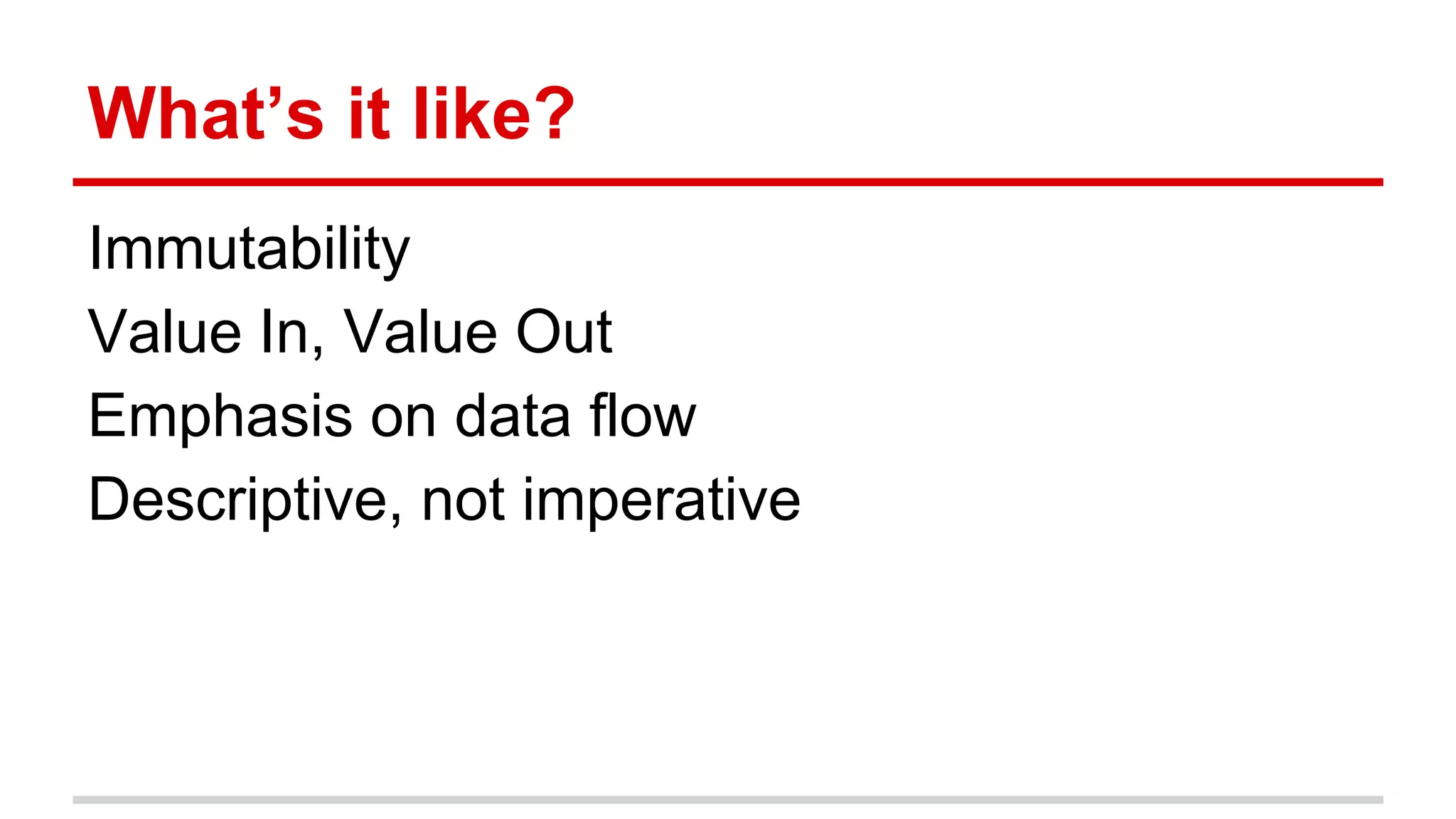
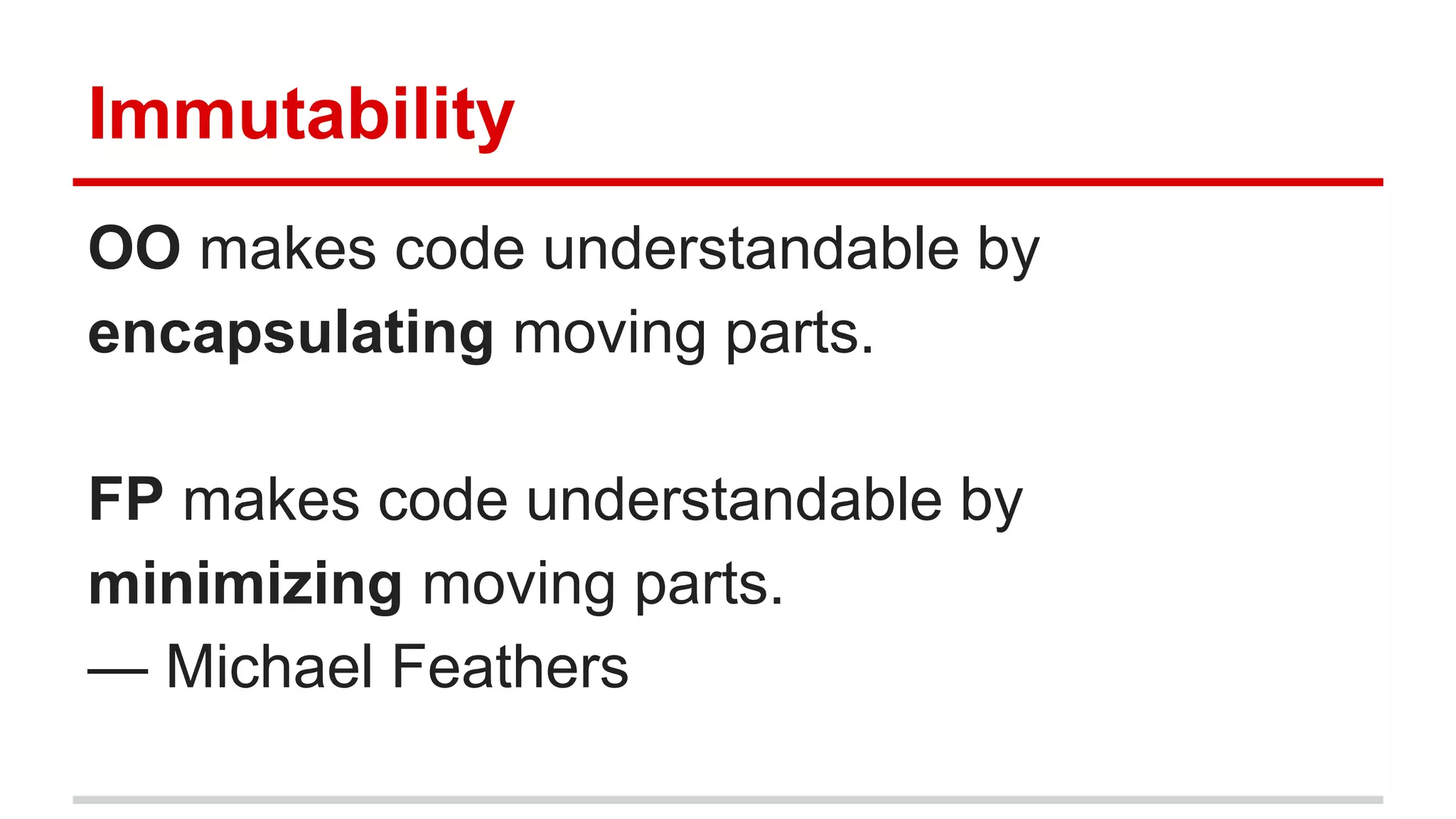
![An Example
def firstLarger(data: List[Int], threshold: Int): Int = ???](https://image.slidesharecdn.com/qcpqgwfzqpmozdqnvzbg-signature-48694b515c7671be15964332fc0a5dd1175476e46ffaea22fec70c2e7de2168d-poli-150622185321-lva1-app6892/75/Intro-to-Functional-Programming-with-Scala-psuweb-15-2048.jpg)
![An Example
def firstLarger(data: List[Int], threshold: Int): Int = ???
val numbers = List(3, 2, 4, 7, 9, 8, 1)
firstLarger(numbers, 5) // returns 7
firstLarger(numbers, 10) // returns ?](https://image.slidesharecdn.com/qcpqgwfzqpmozdqnvzbg-signature-48694b515c7671be15964332fc0a5dd1175476e46ffaea22fec70c2e7de2168d-poli-150622185321-lva1-app6892/75/Intro-to-Functional-Programming-with-Scala-psuweb-16-2048.jpg)
![Method Signatures & Error Signaling
public int firstLarger(final int[] data,
final int threshold) throws NoSuchElementException](https://image.slidesharecdn.com/qcpqgwfzqpmozdqnvzbg-signature-48694b515c7671be15964332fc0a5dd1175476e46ffaea22fec70c2e7de2168d-poli-150622185321-lva1-app6892/75/Intro-to-Functional-Programming-with-Scala-psuweb-17-2048.jpg)
![Method Signatures & Error Signaling
/**
* ...
* @return null on error
*/
public Integer firstLarger(final int[] data, final int threshold)](https://image.slidesharecdn.com/qcpqgwfzqpmozdqnvzbg-signature-48694b515c7671be15964332fc0a5dd1175476e46ffaea22fec70c2e7de2168d-poli-150622185321-lva1-app6892/75/Intro-to-Functional-Programming-with-Scala-psuweb-18-2048.jpg)
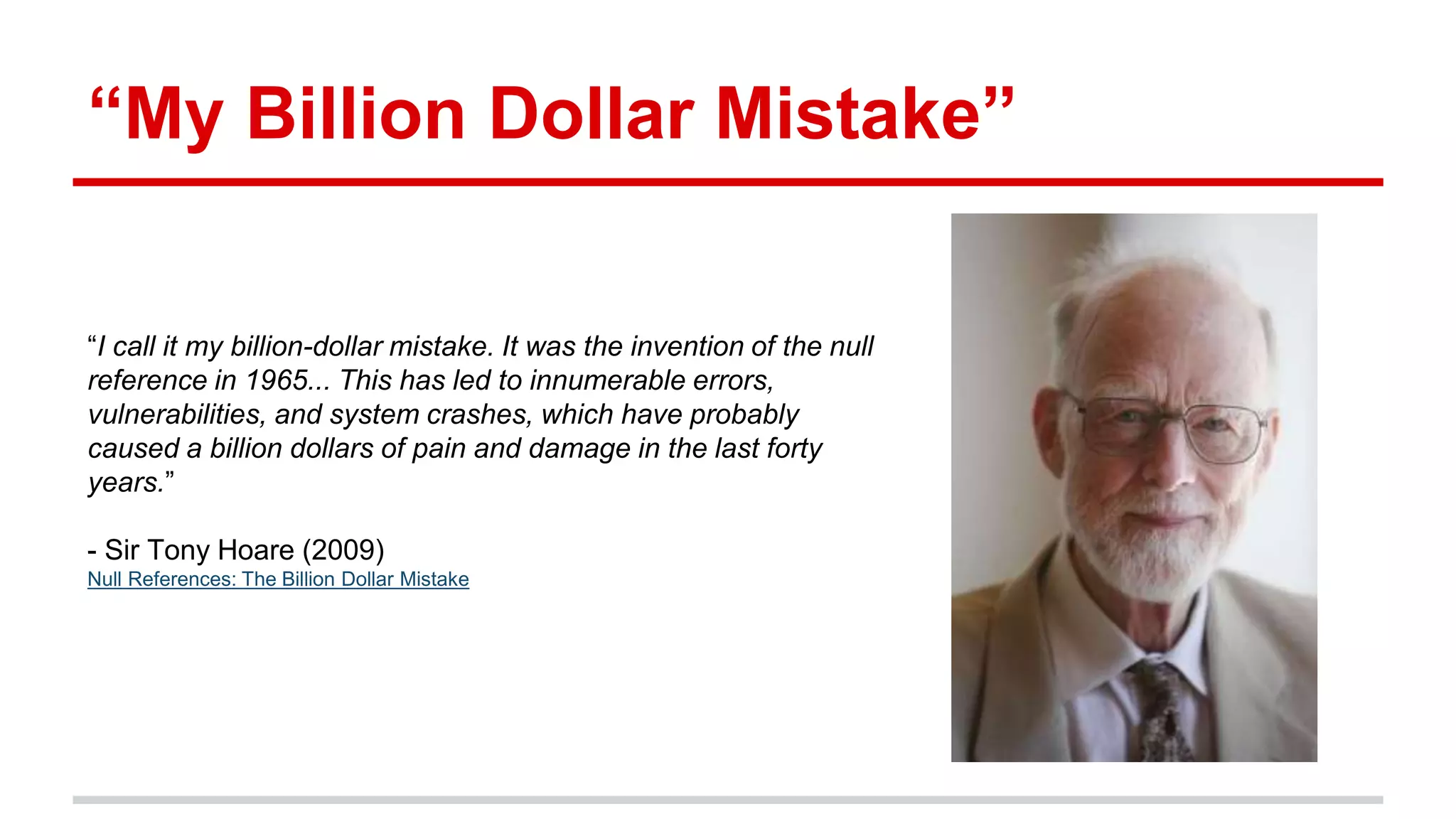
![Use the type system
Option[T]
Some(value: T) None](https://image.slidesharecdn.com/qcpqgwfzqpmozdqnvzbg-signature-48694b515c7671be15964332fc0a5dd1175476e46ffaea22fec70c2e7de2168d-poli-150622185321-lva1-app6892/75/Intro-to-Functional-Programming-with-Scala-psuweb-20-2048.jpg)
![Option
sealed abstract class Option[T]
// wrapper around a value
final class Some[T](value: T) extends Option[T]
// Singleton marker for no value
// Not null. Safe to dereference.
object None extends Option](https://image.slidesharecdn.com/qcpqgwfzqpmozdqnvzbg-signature-48694b515c7671be15964332fc0a5dd1175476e46ffaea22fec70c2e7de2168d-poli-150622185321-lva1-app6892/75/Intro-to-Functional-Programming-with-Scala-psuweb-21-2048.jpg)
![Scala Map
val people = Map("Frank" -> "N. Furter",
"Lady" -> "Gaga")
val frank = people.get("Frank")
frank: Option[String] = Some(N. Furter)
val bob = people.get("Bob")
bob: Option[String] = None](https://image.slidesharecdn.com/qcpqgwfzqpmozdqnvzbg-signature-48694b515c7671be15964332fc0a5dd1175476e46ffaea22fec70c2e7de2168d-poli-150622185321-lva1-app6892/75/Intro-to-Functional-Programming-with-Scala-psuweb-22-2048.jpg)
![Signature
val numbers = List(3, 2, 4, 7, 9, 8, 1)
def firstLarger(data: List[Int], threshold: Int): Option[Int] = ???
firstLarger(numbers, 5) // Some(5)
firstLarger(numbers, 10) // None](https://image.slidesharecdn.com/qcpqgwfzqpmozdqnvzbg-signature-48694b515c7671be15964332fc0a5dd1175476e46ffaea22fec70c2e7de2168d-poli-150622185321-lva1-app6892/75/Intro-to-Functional-Programming-with-Scala-psuweb-23-2048.jpg)
